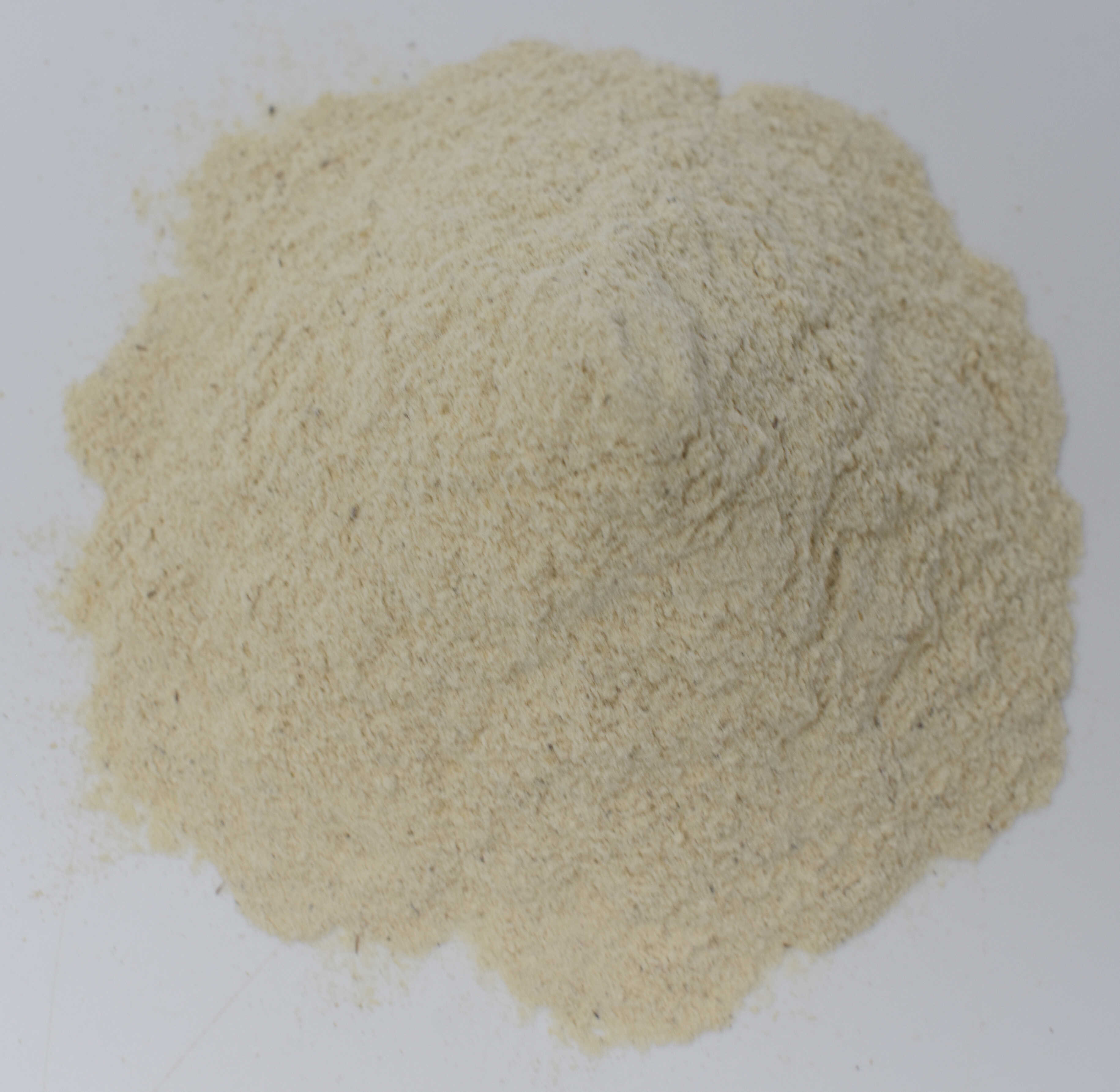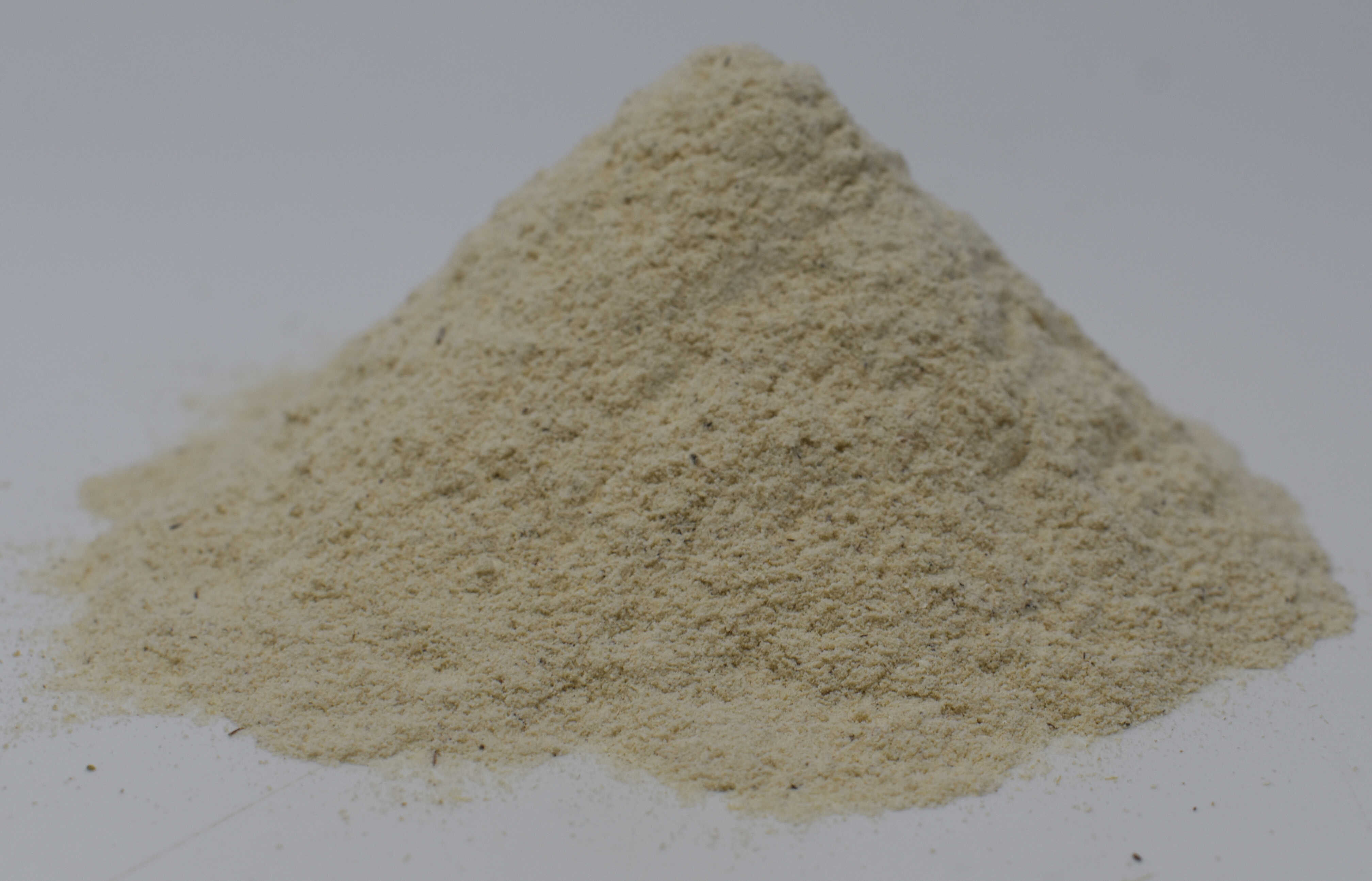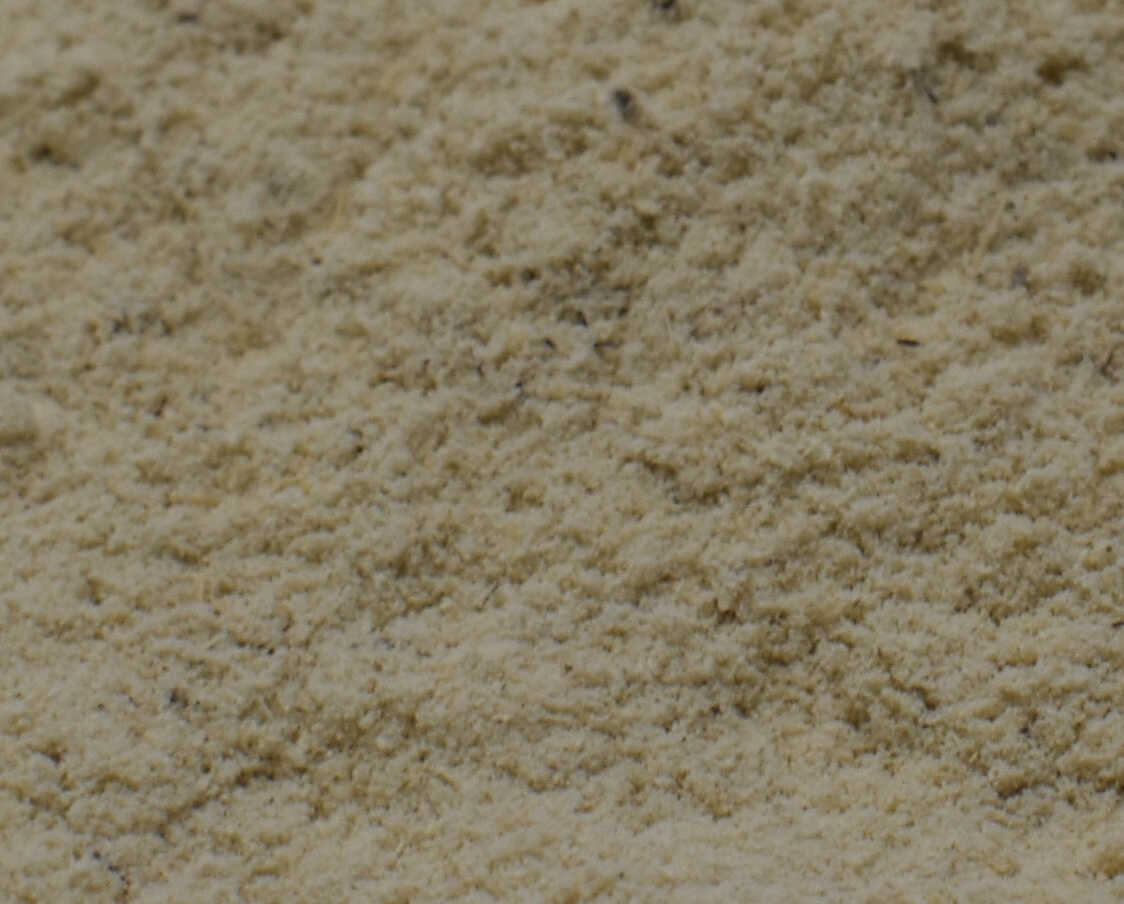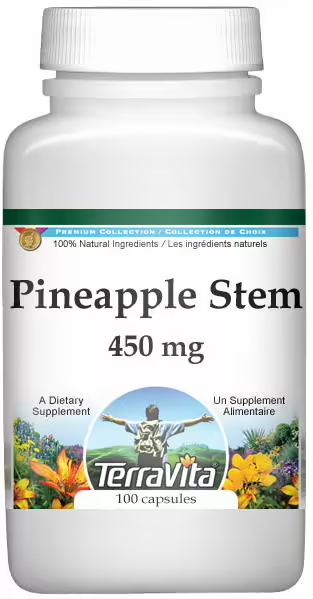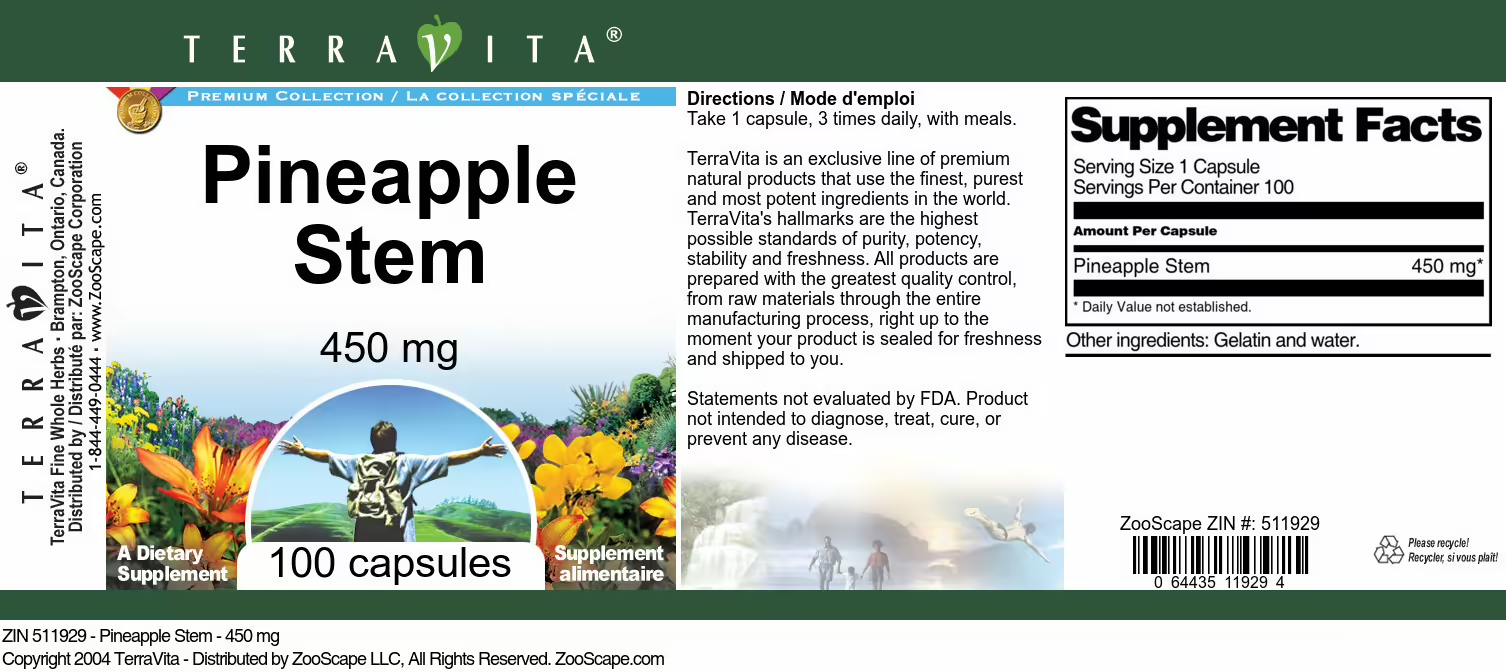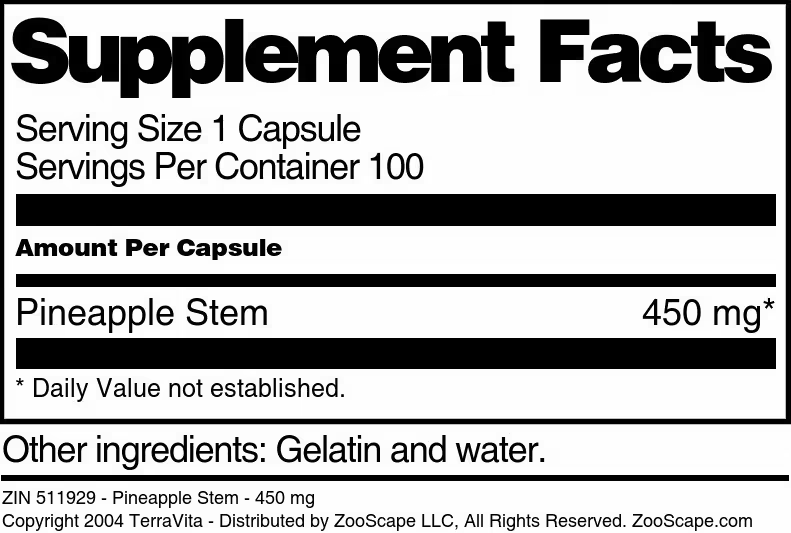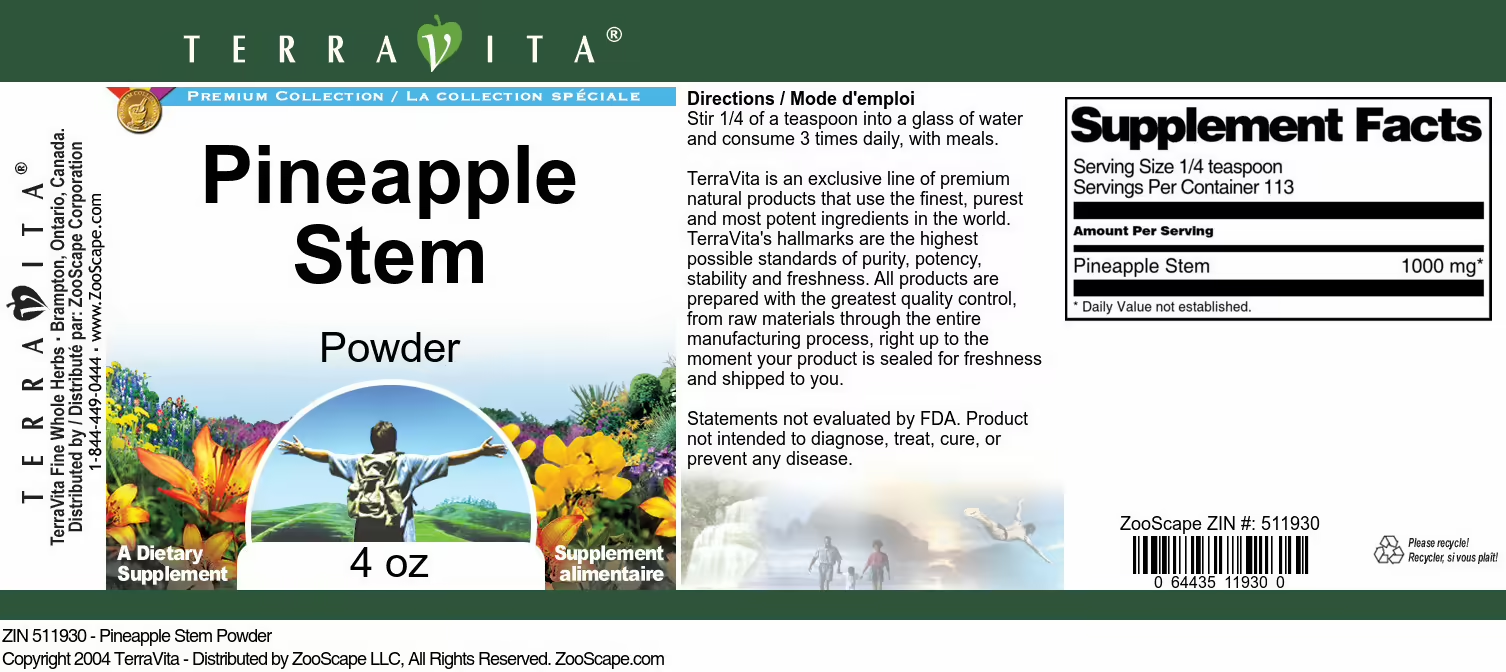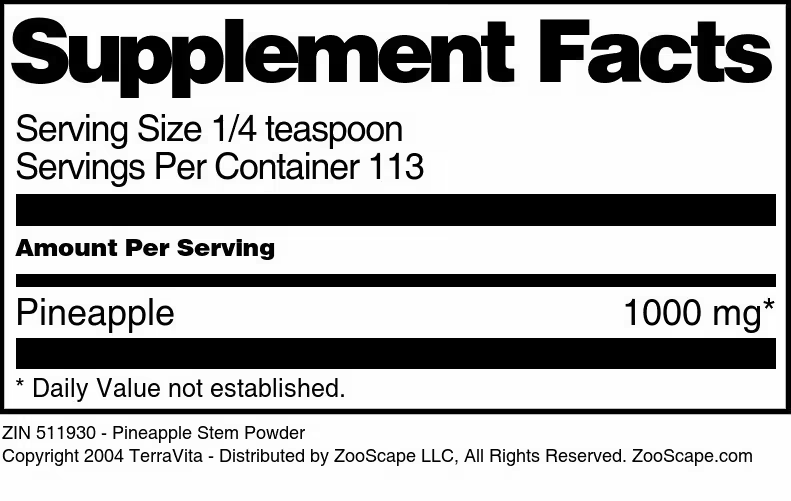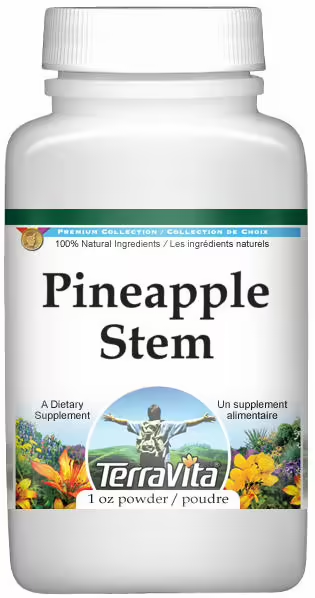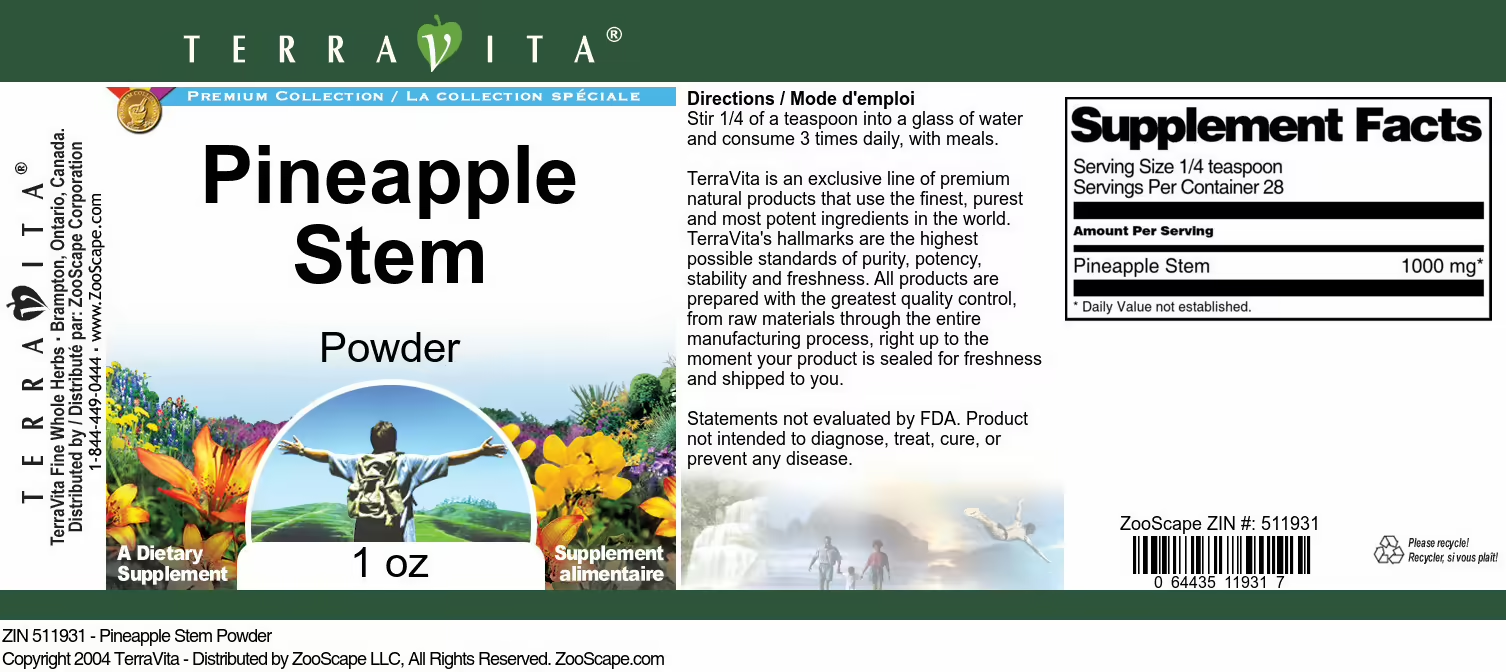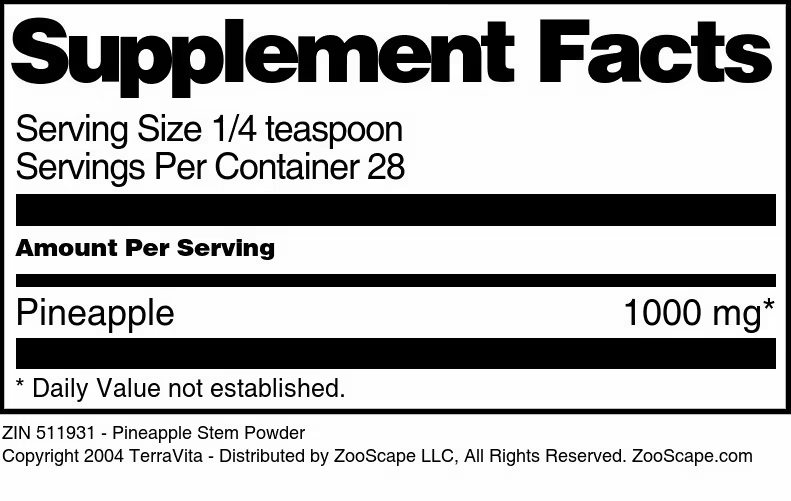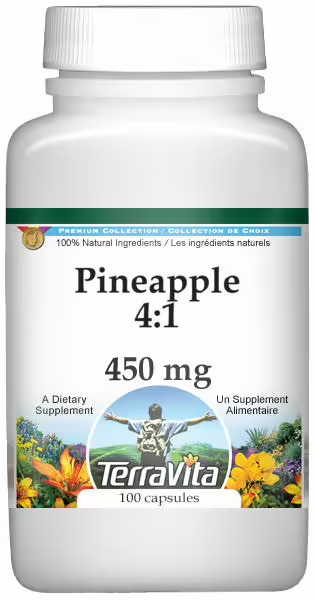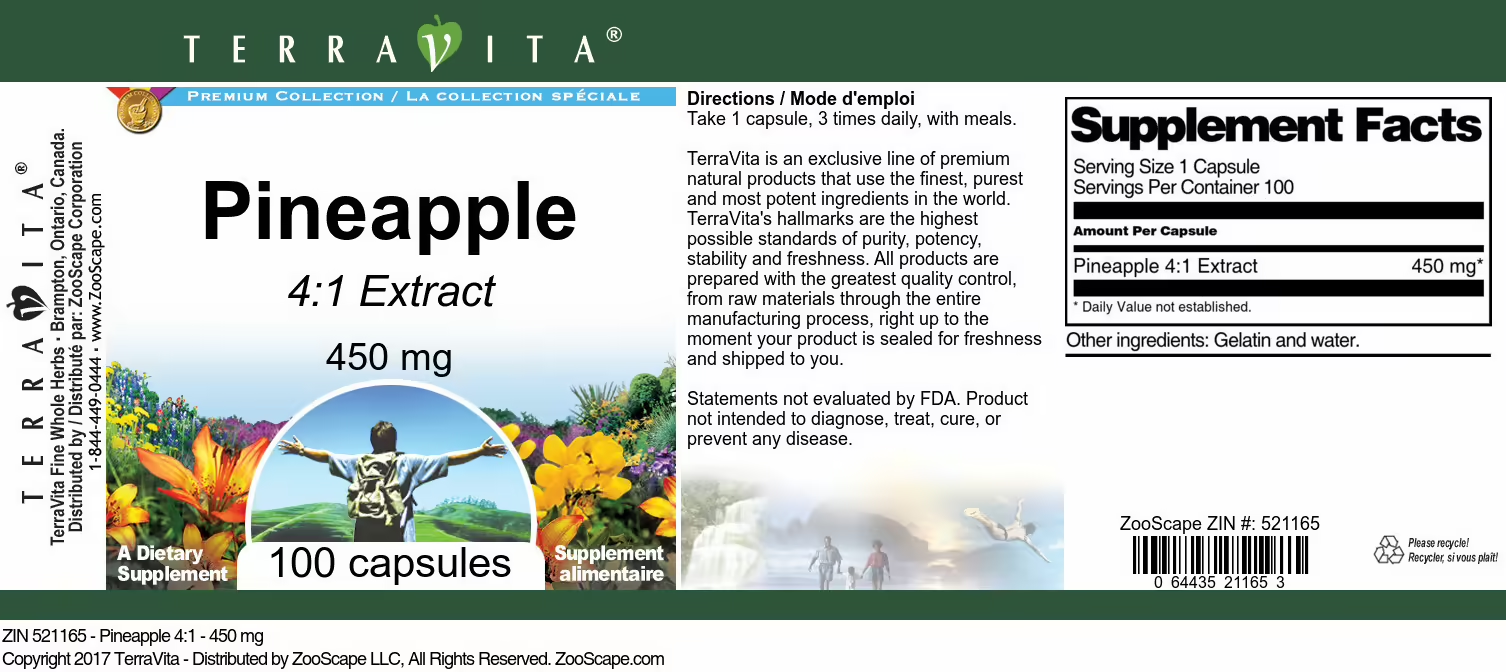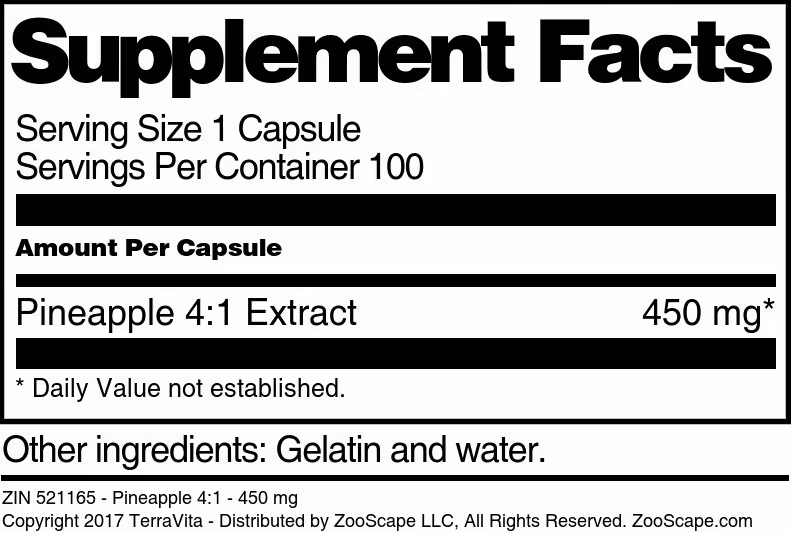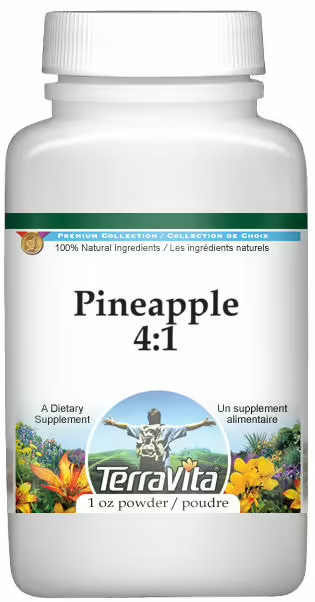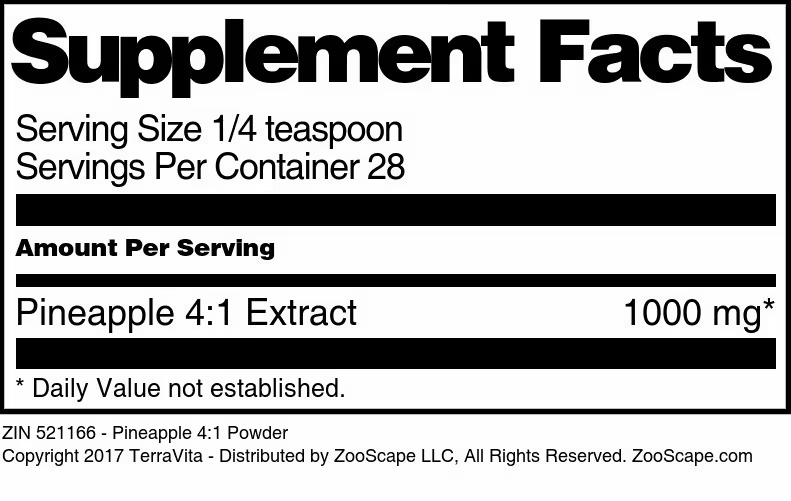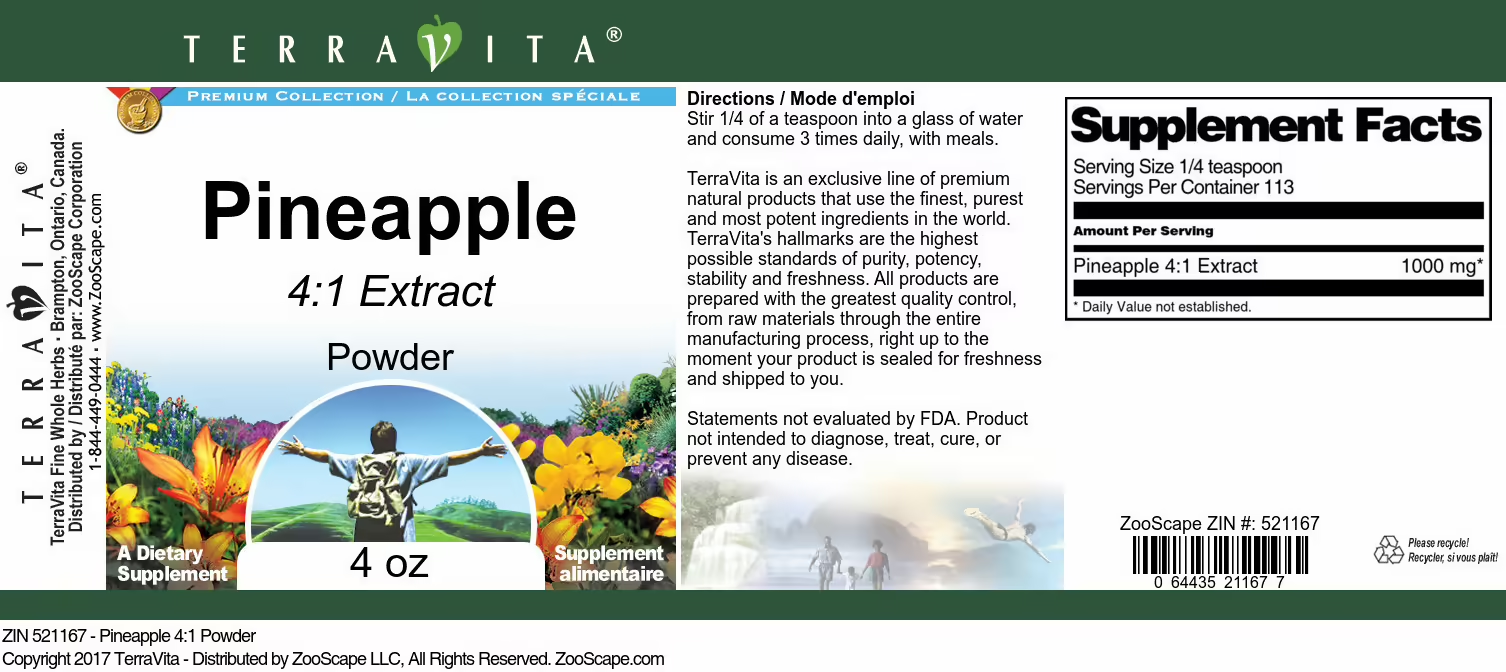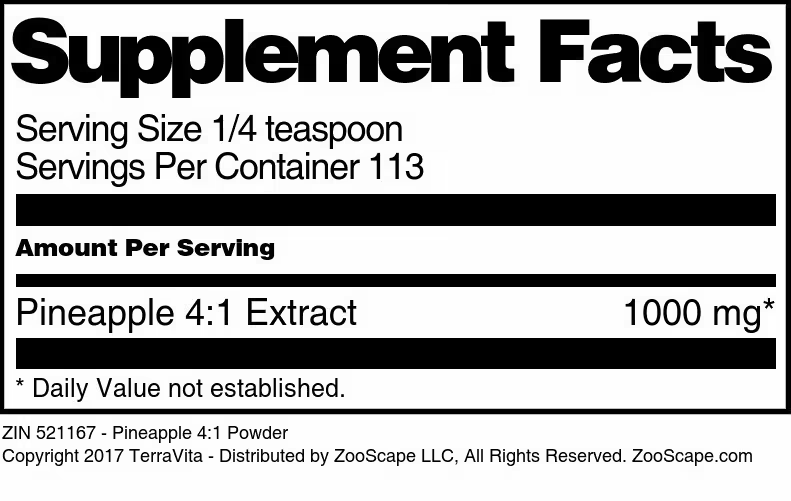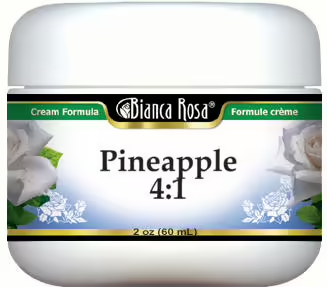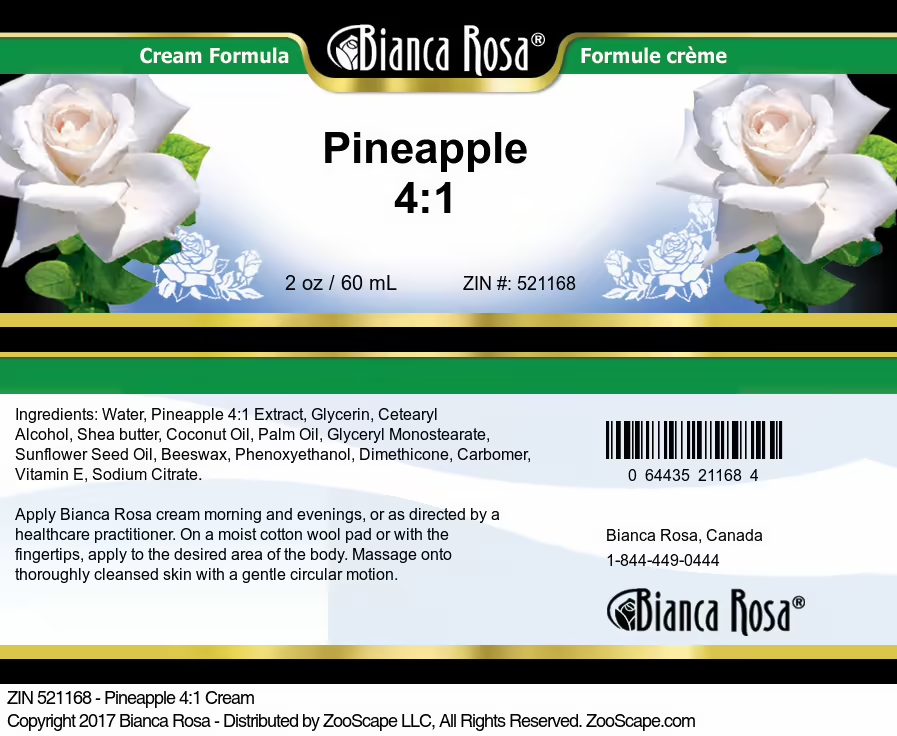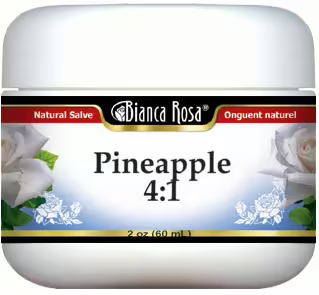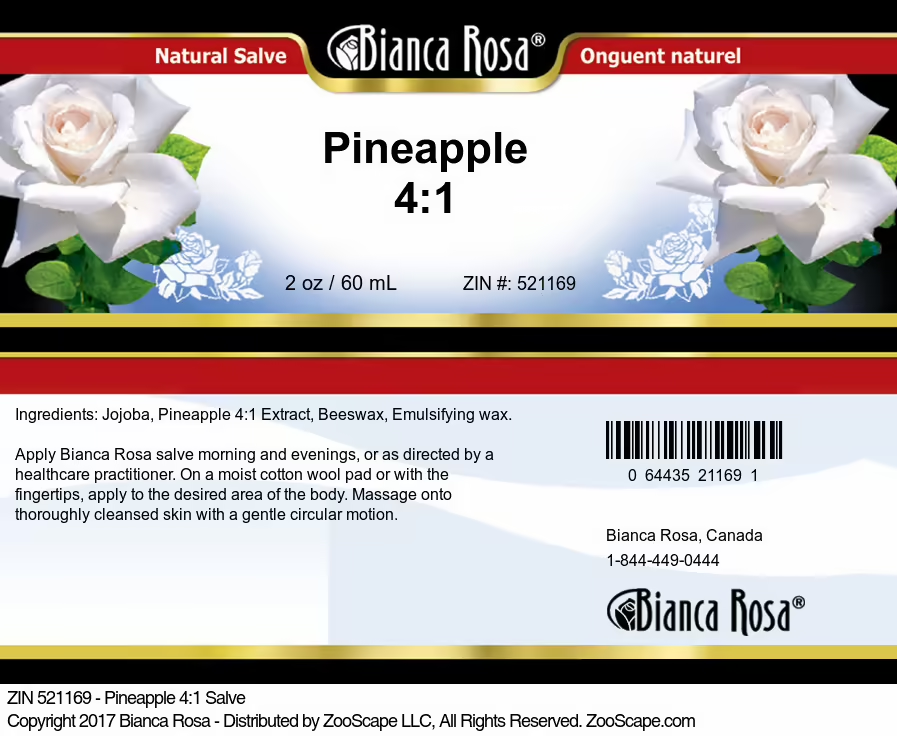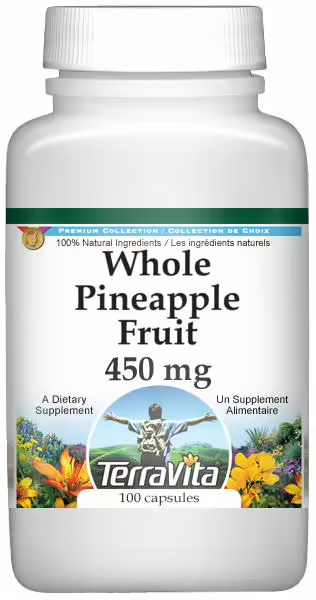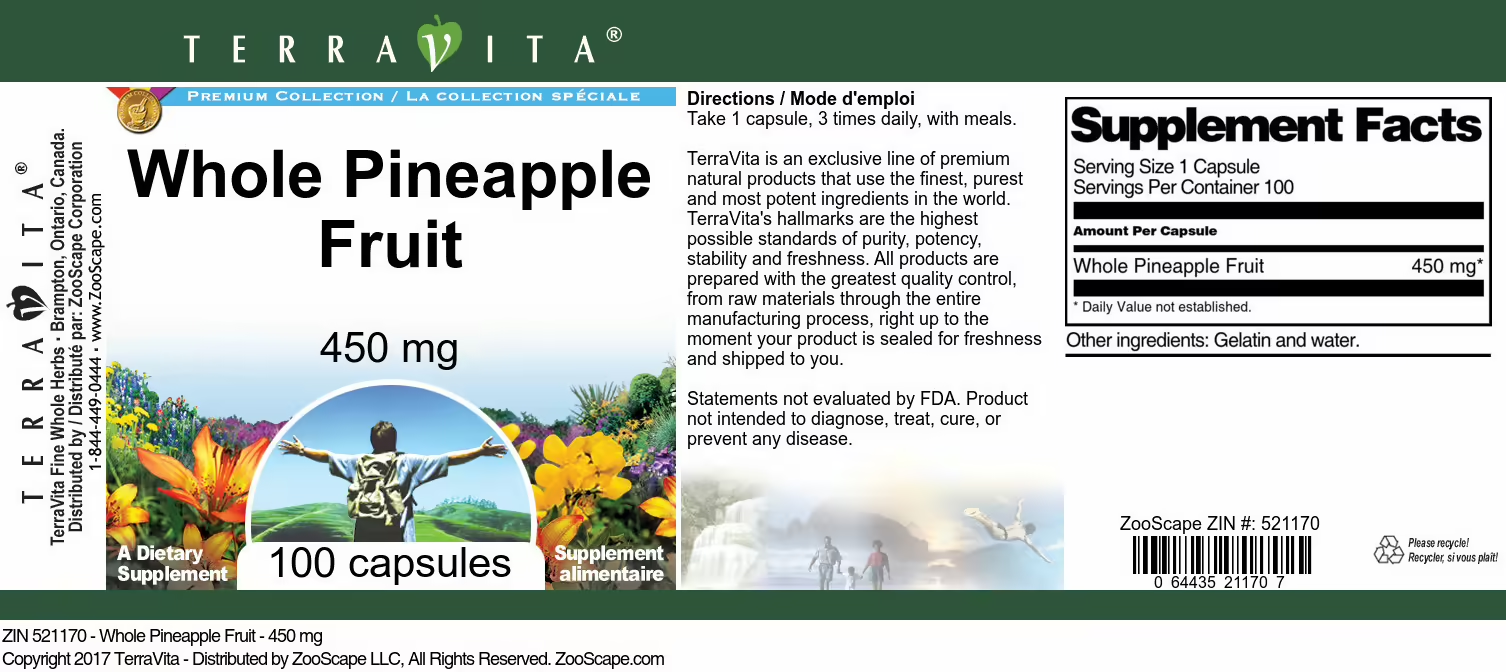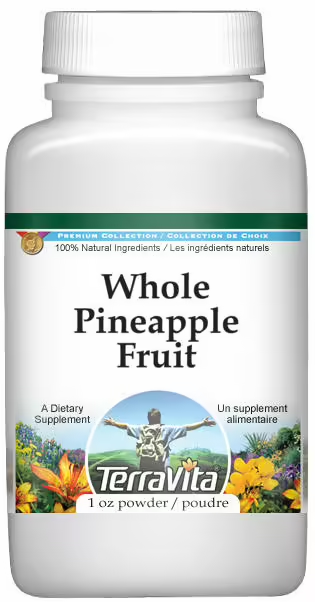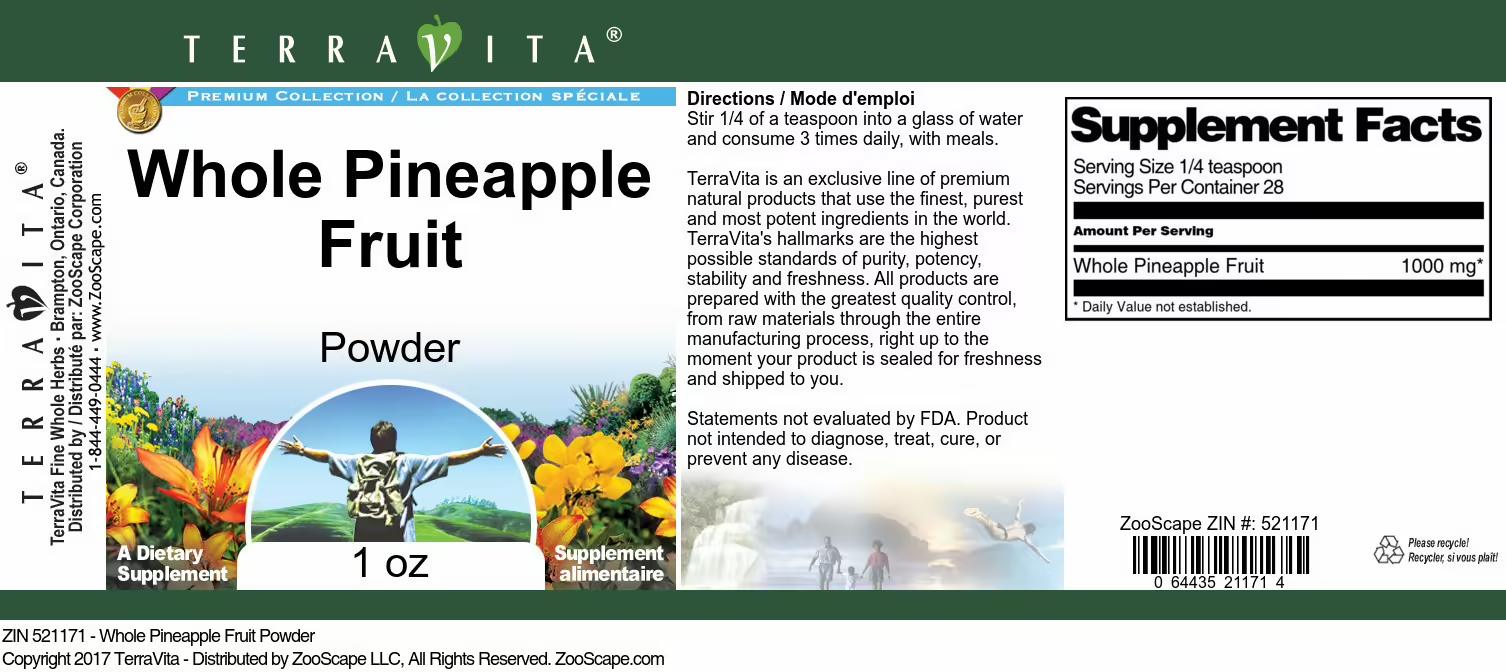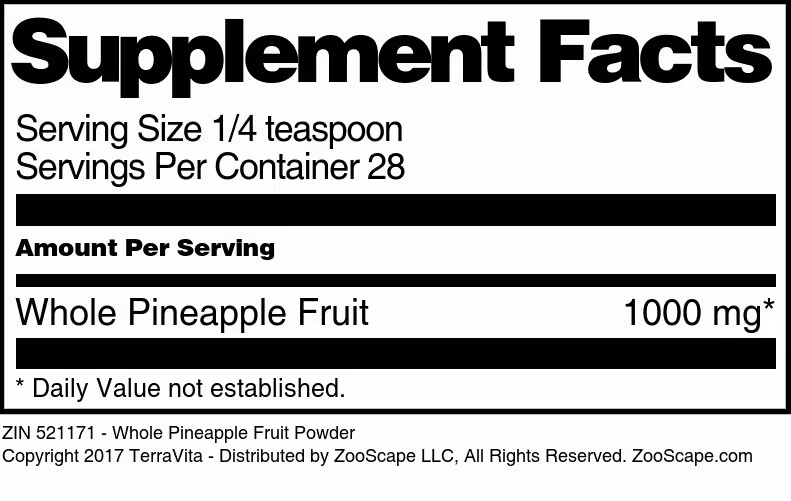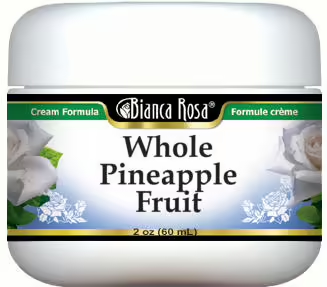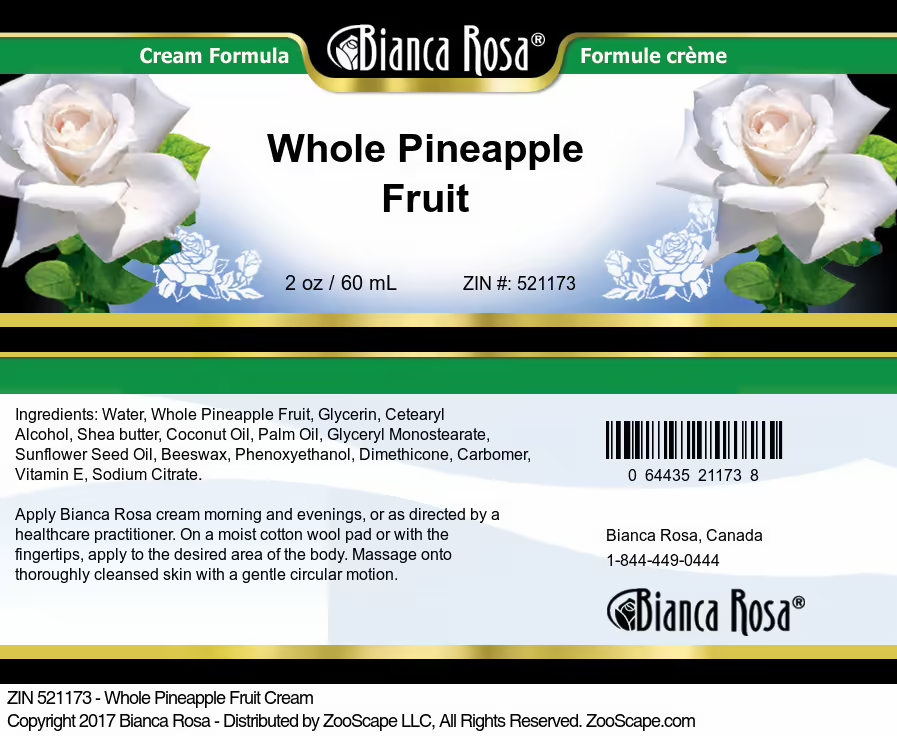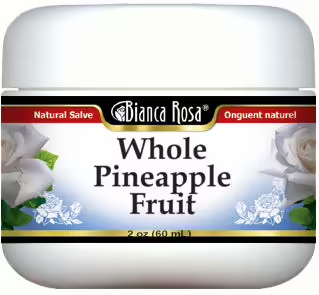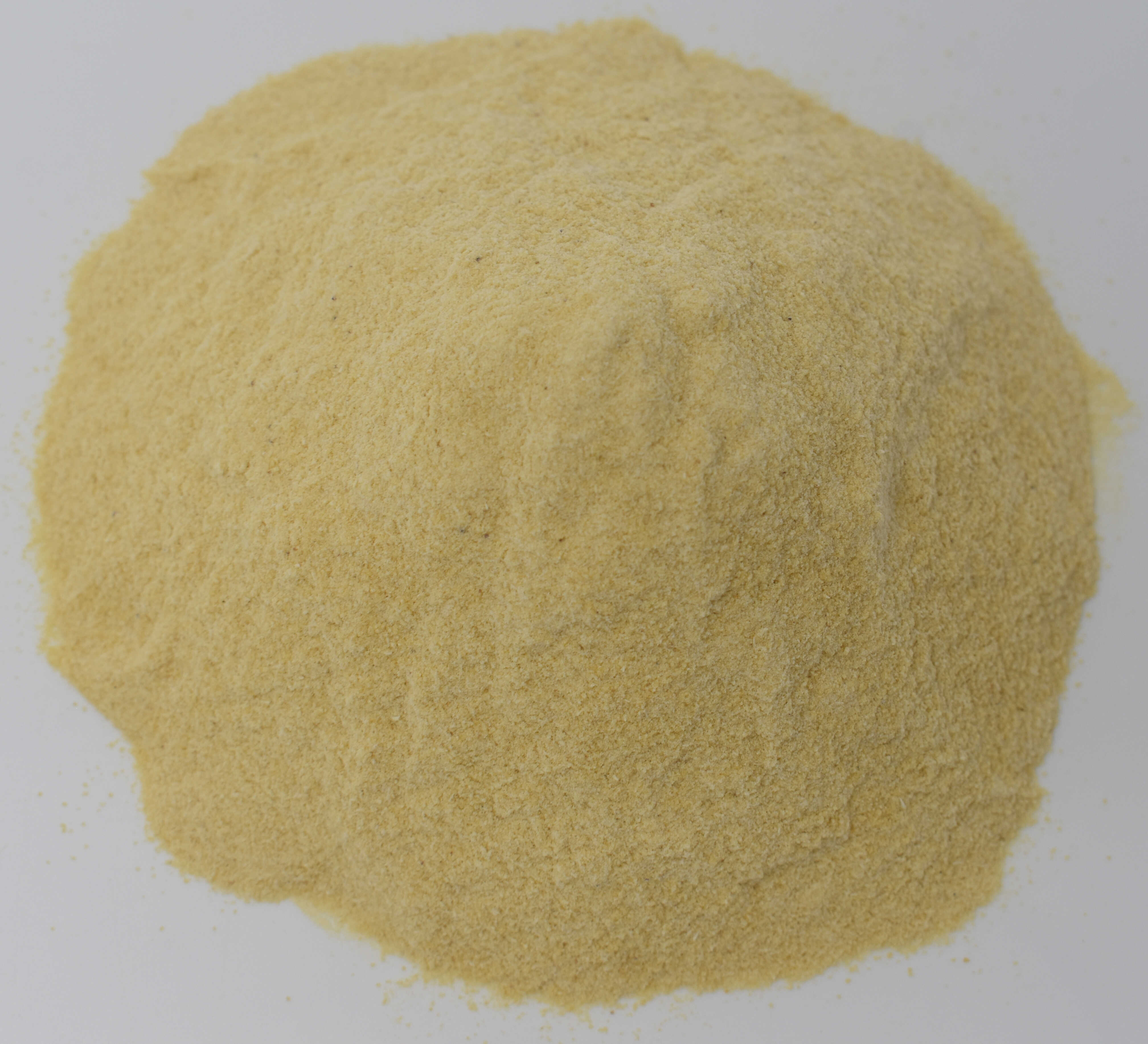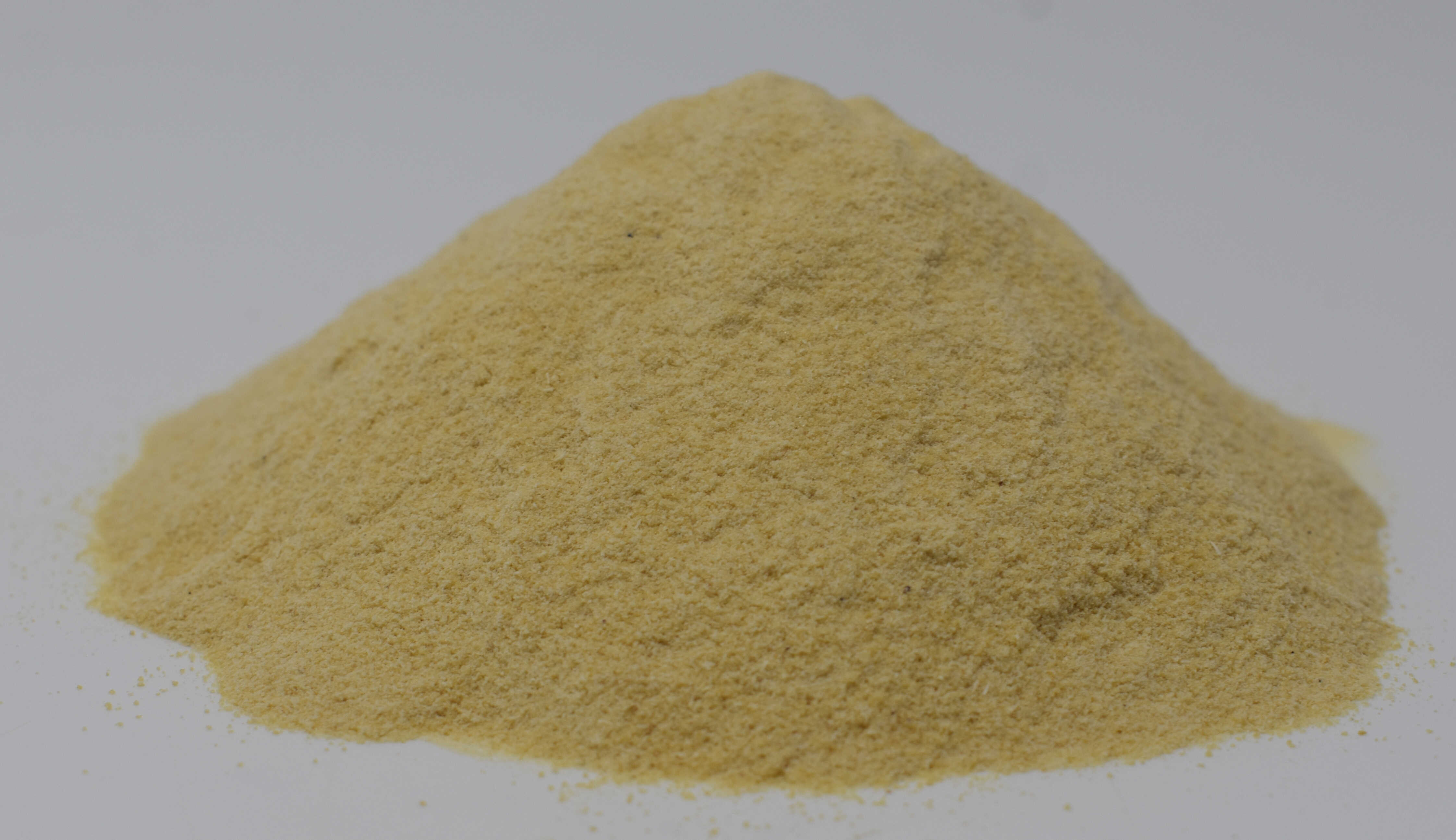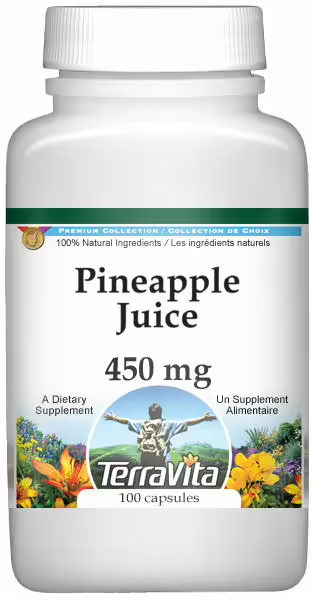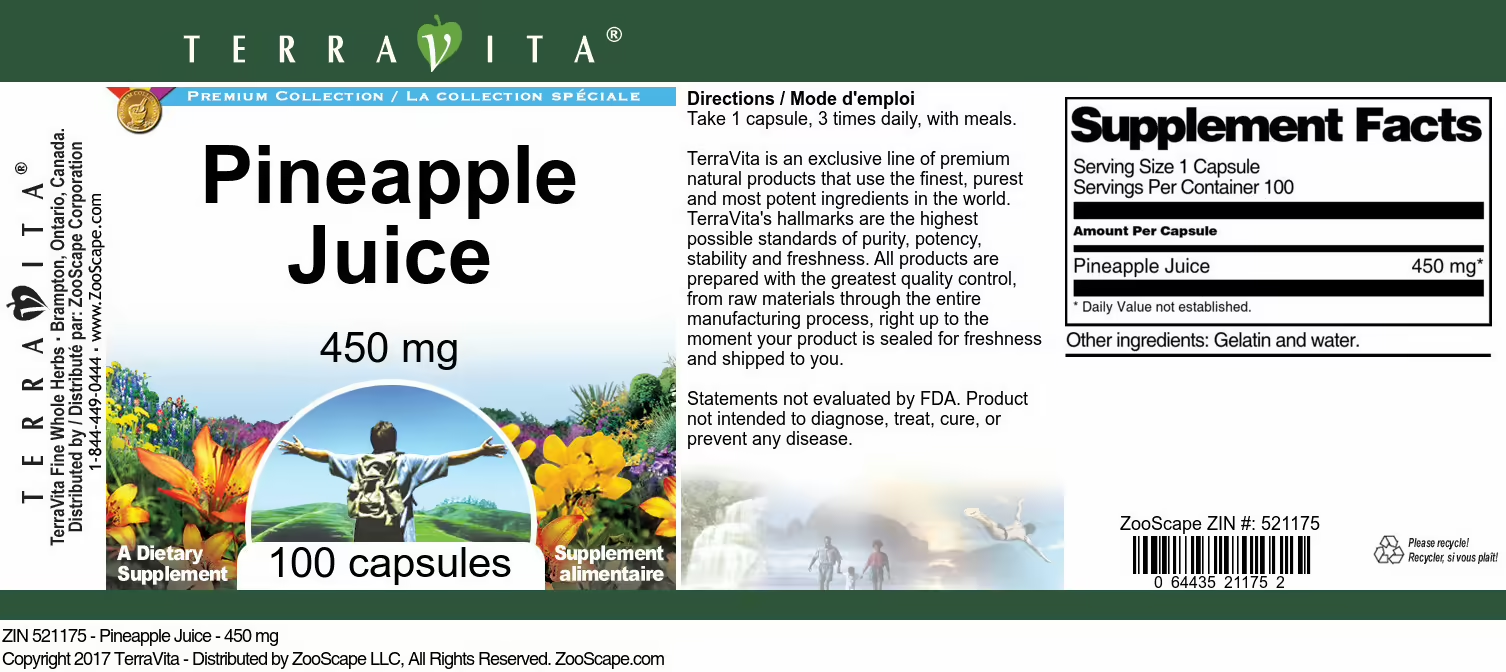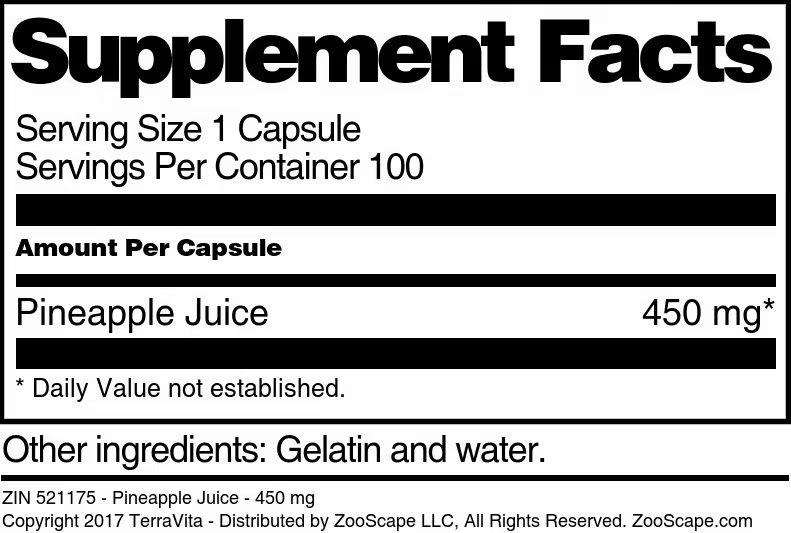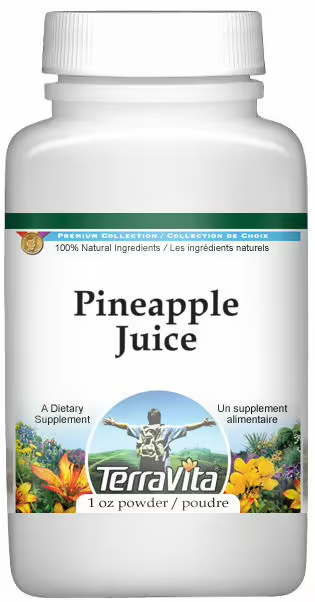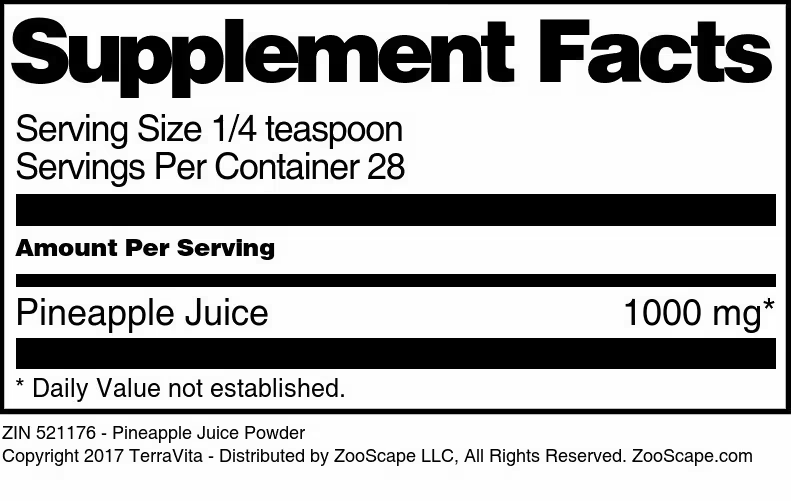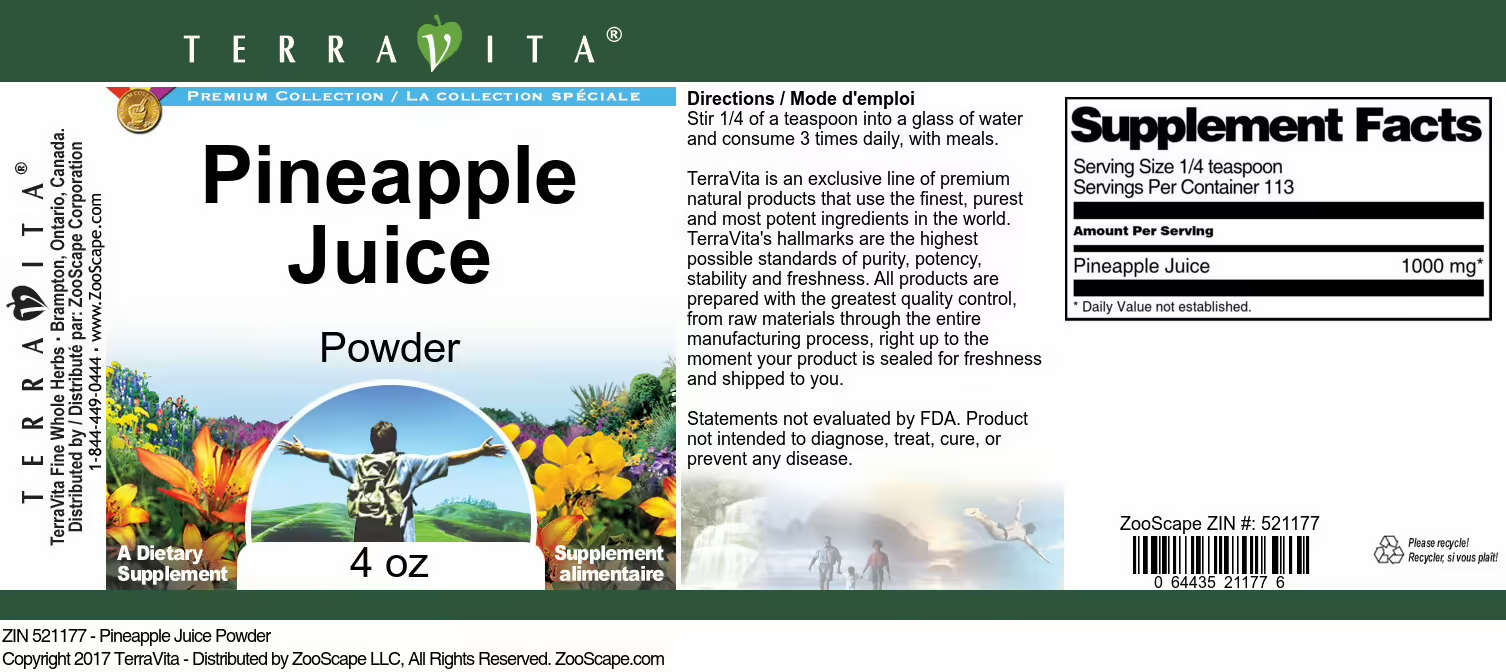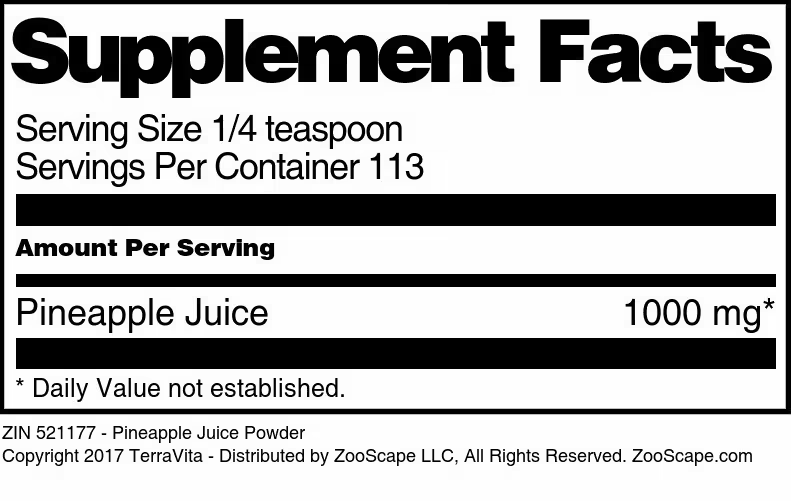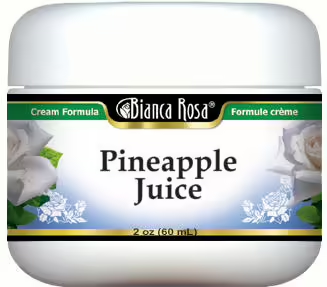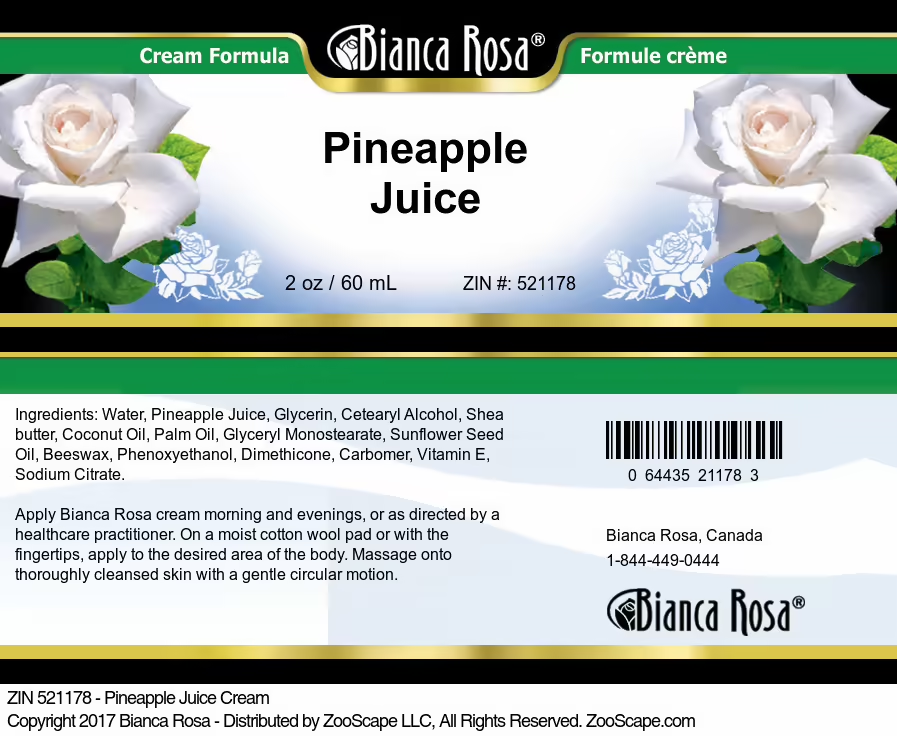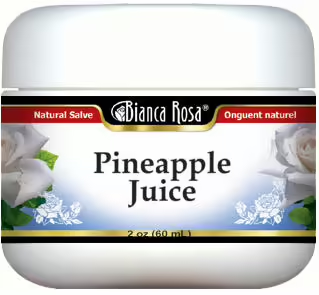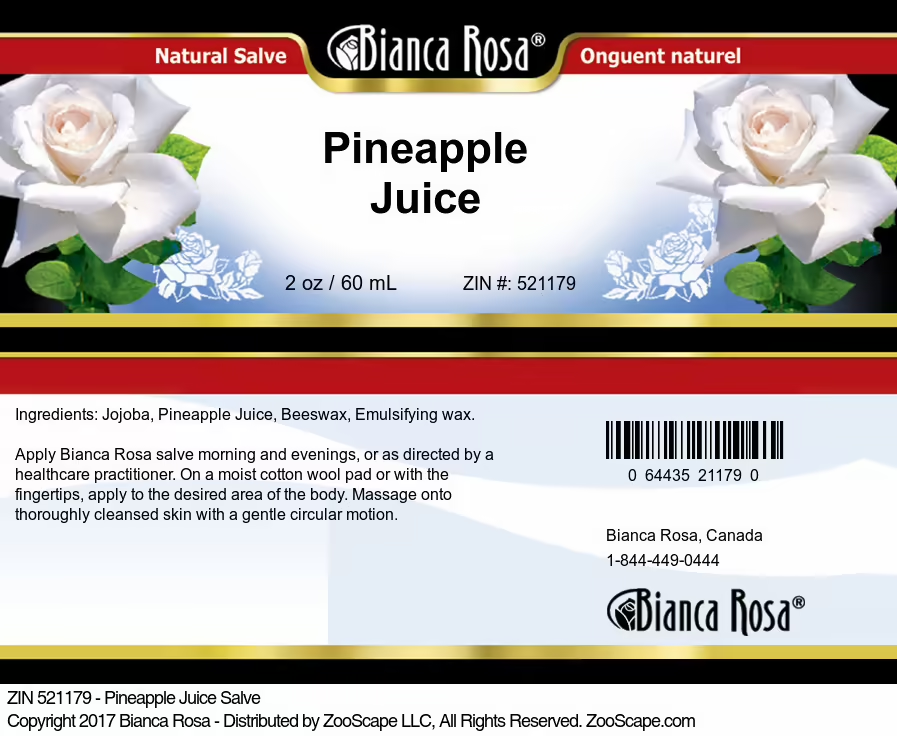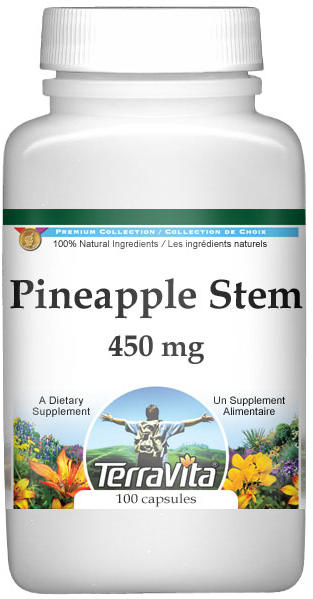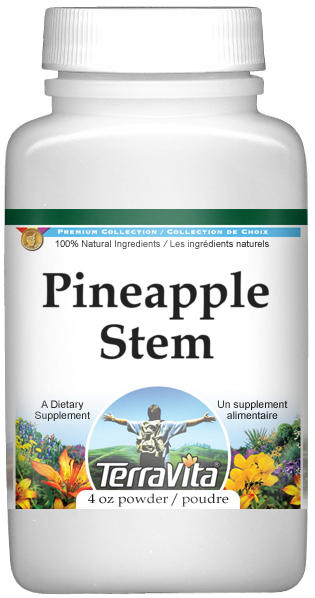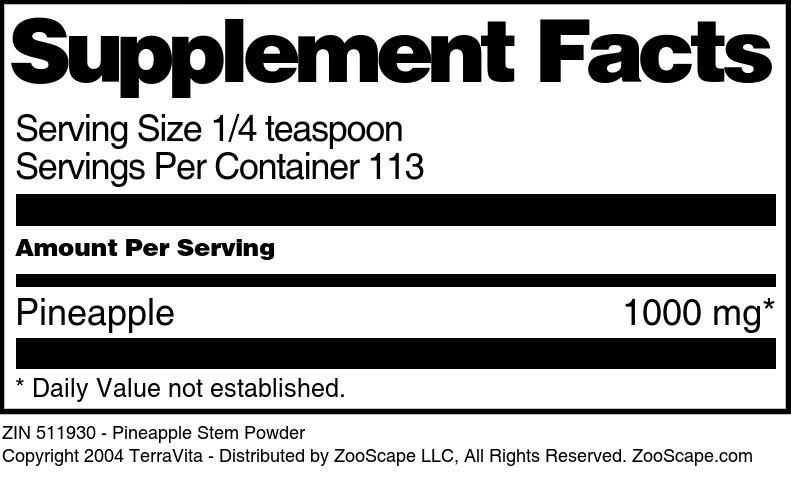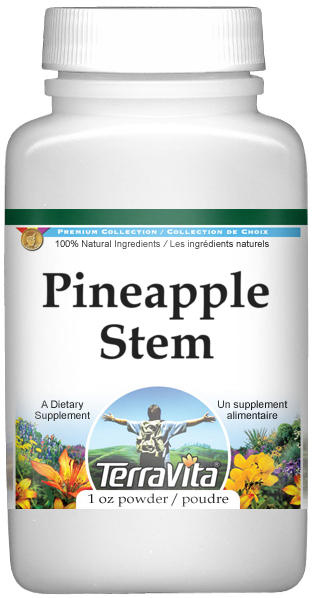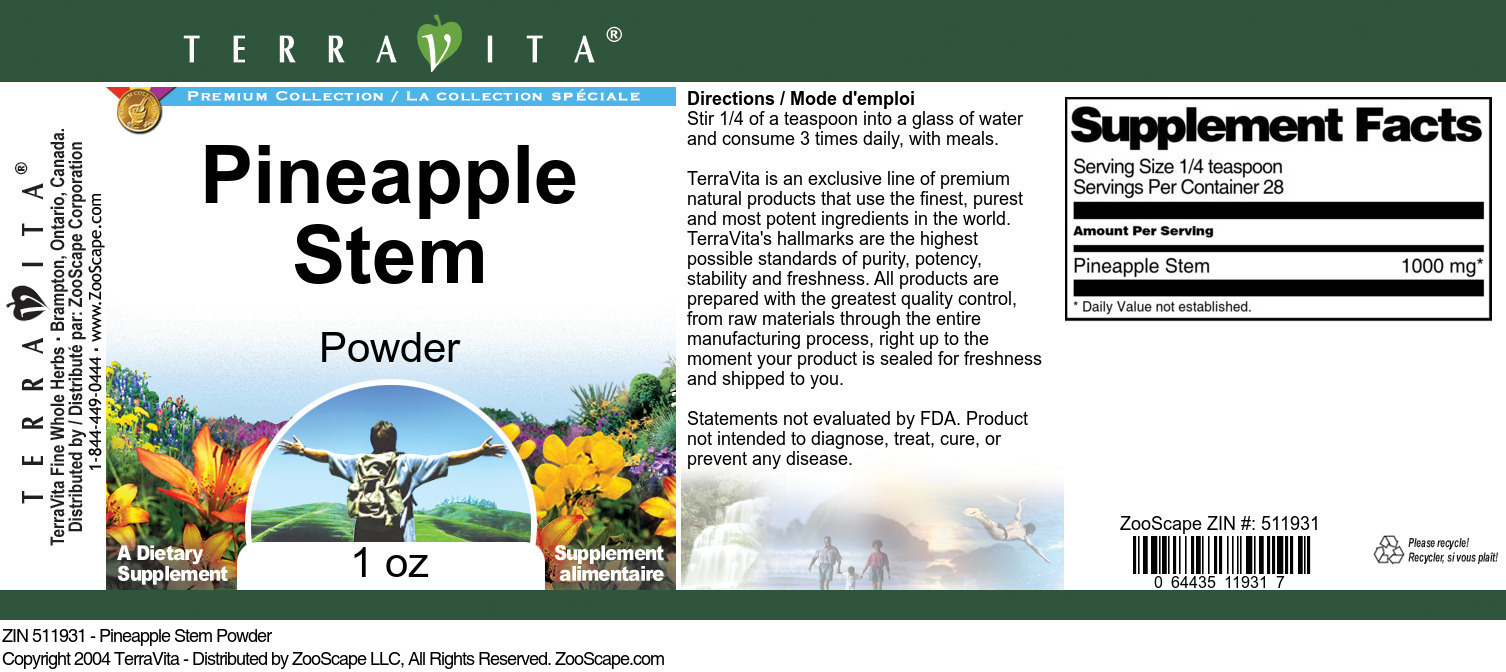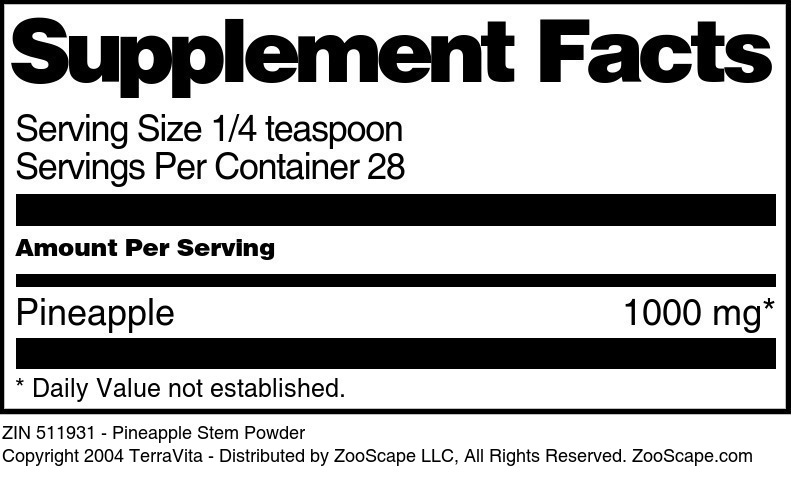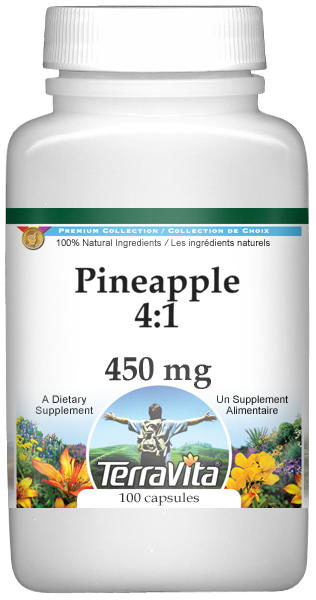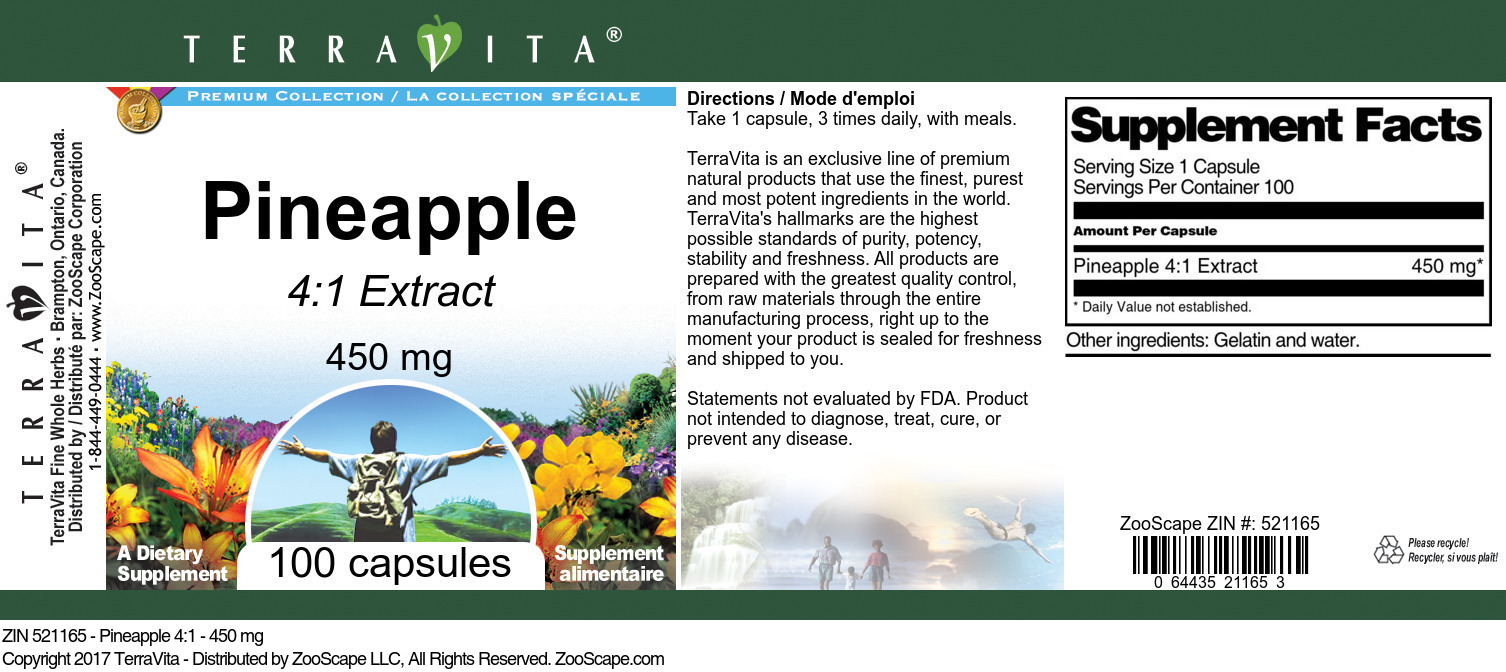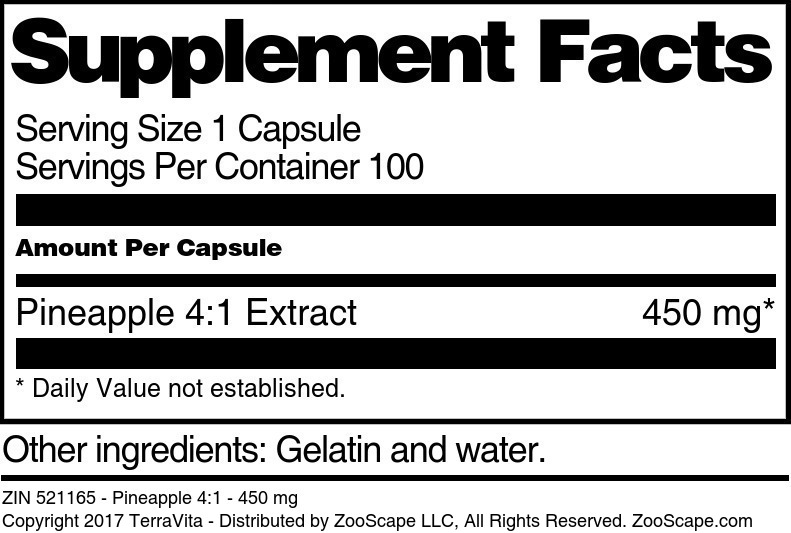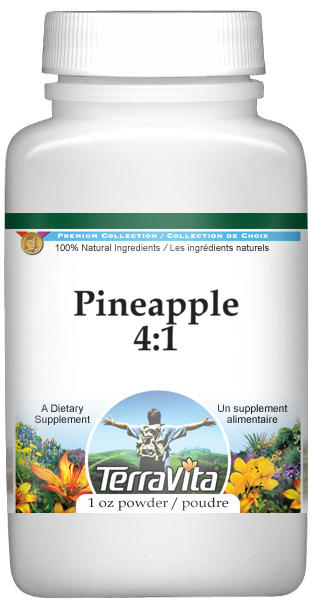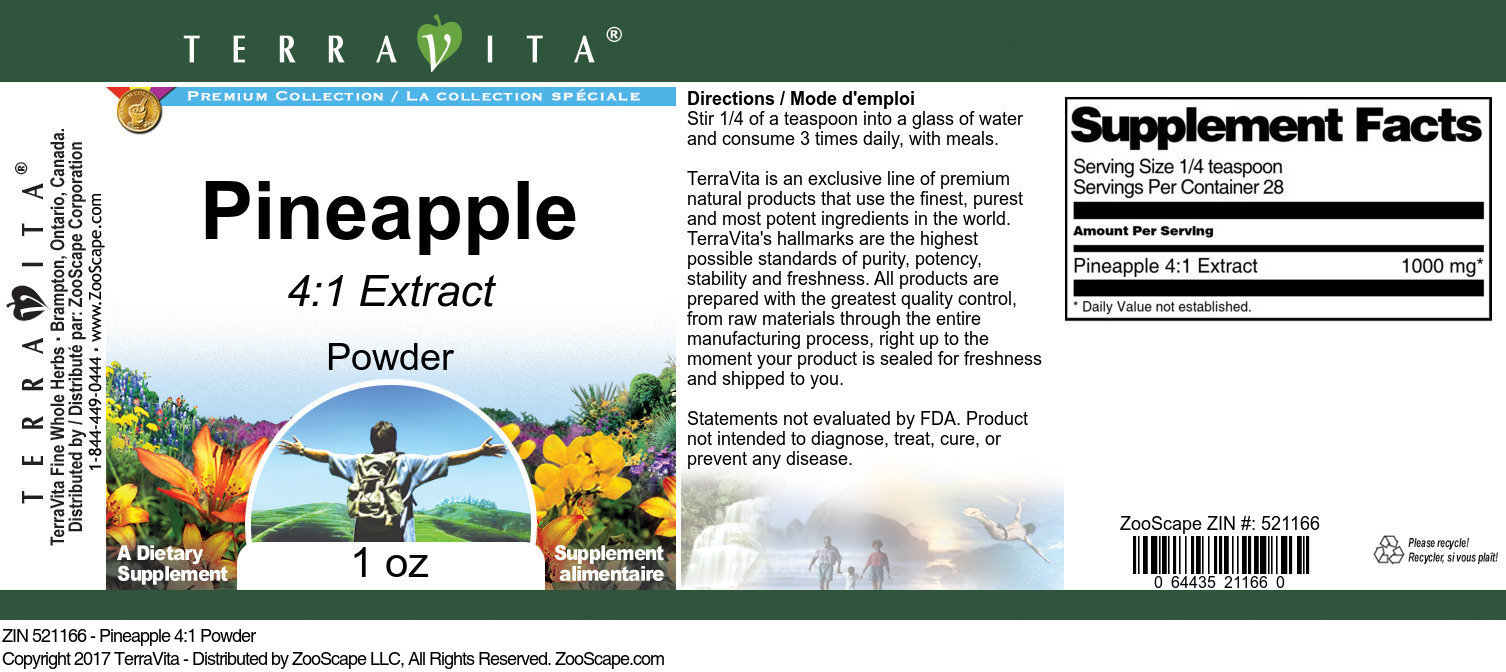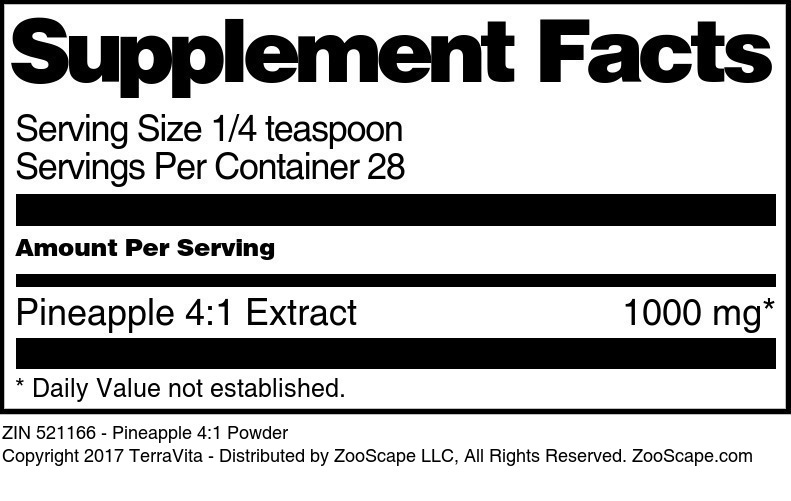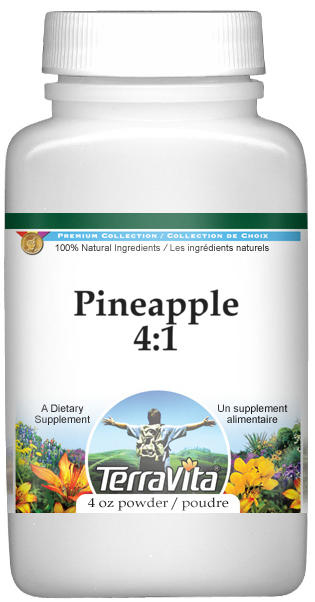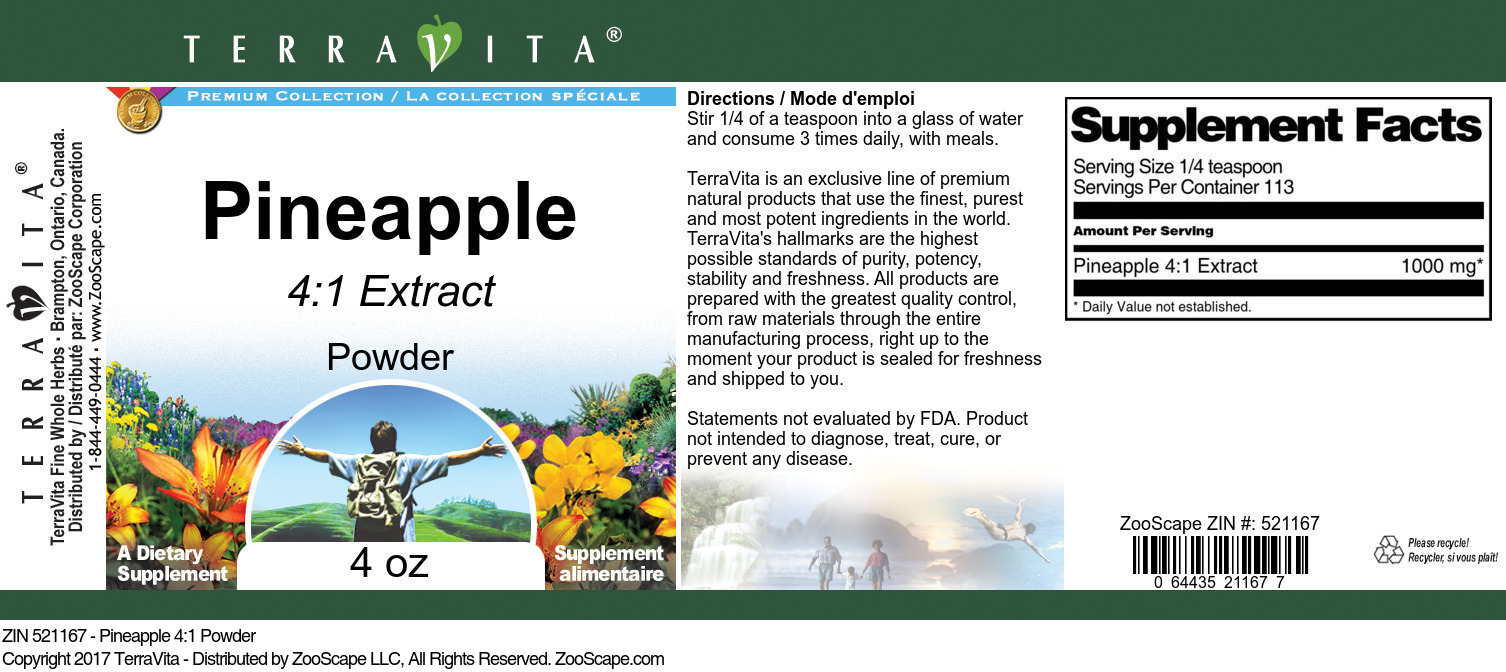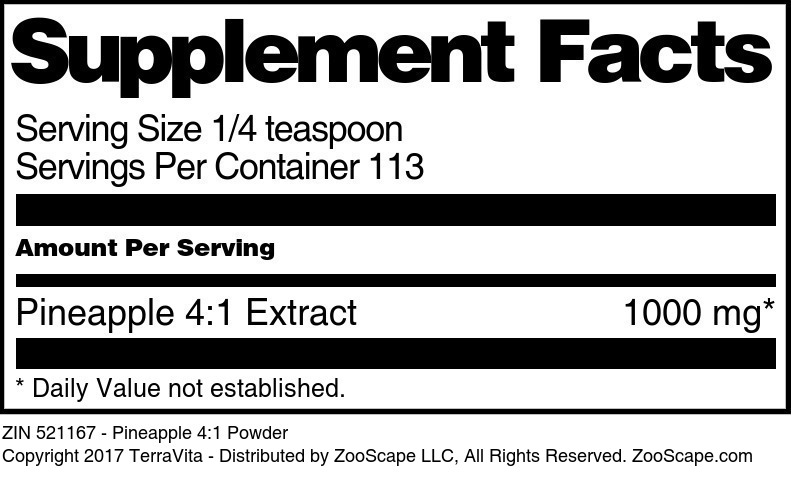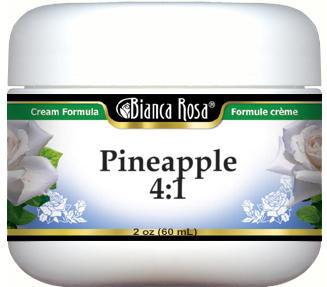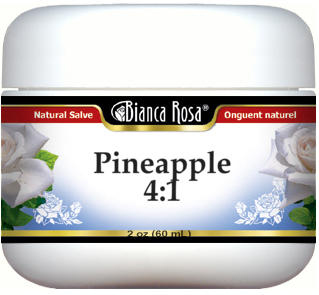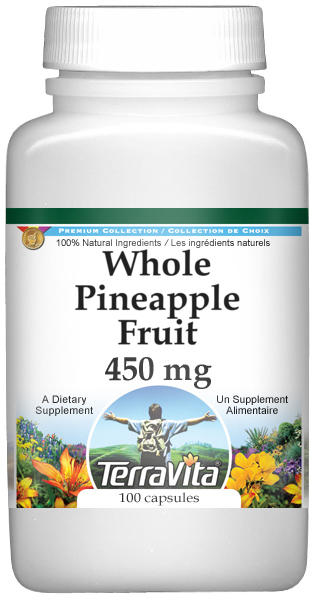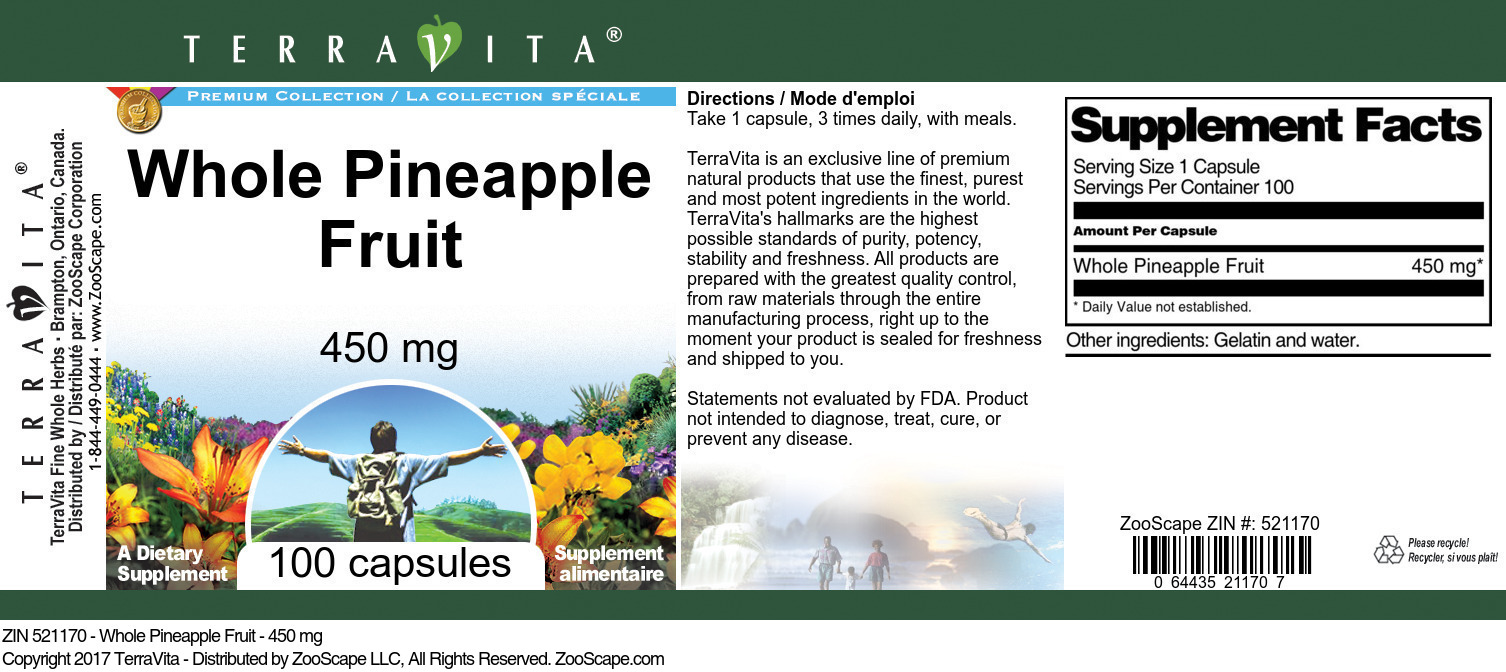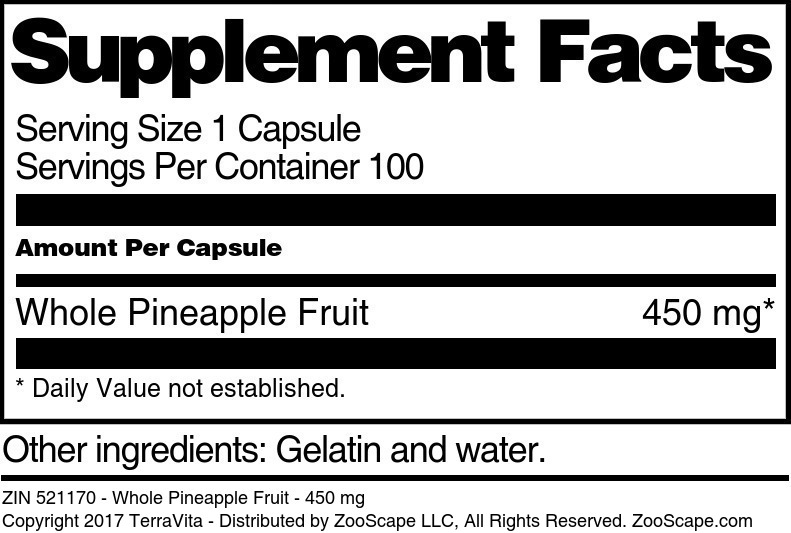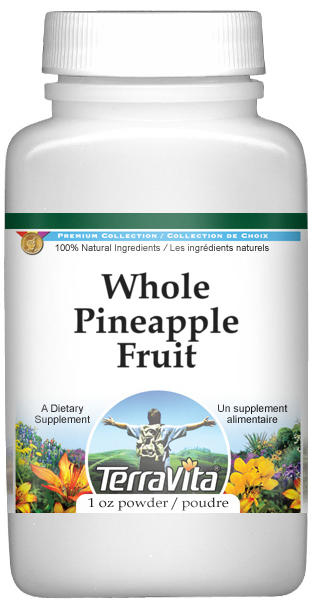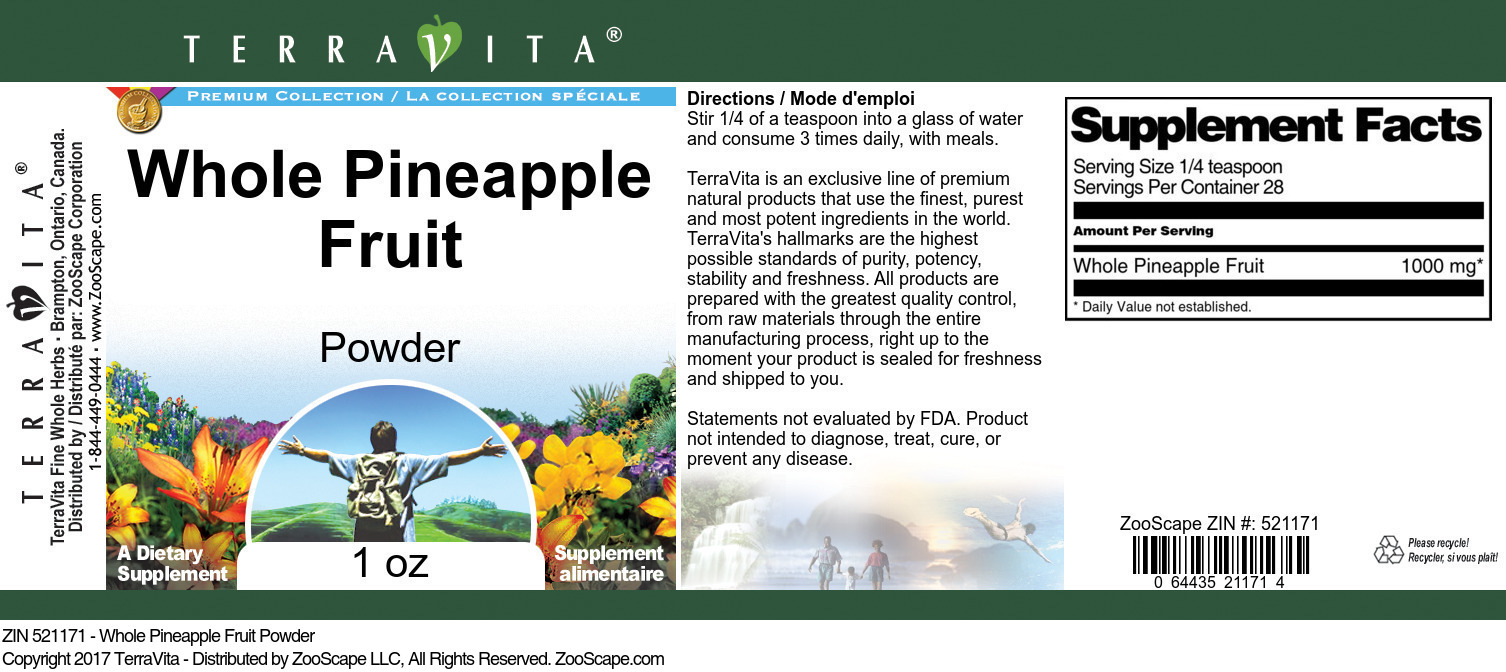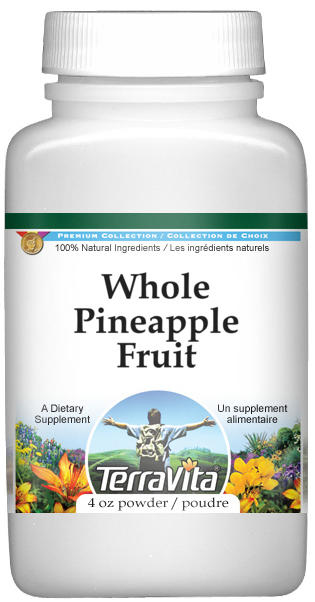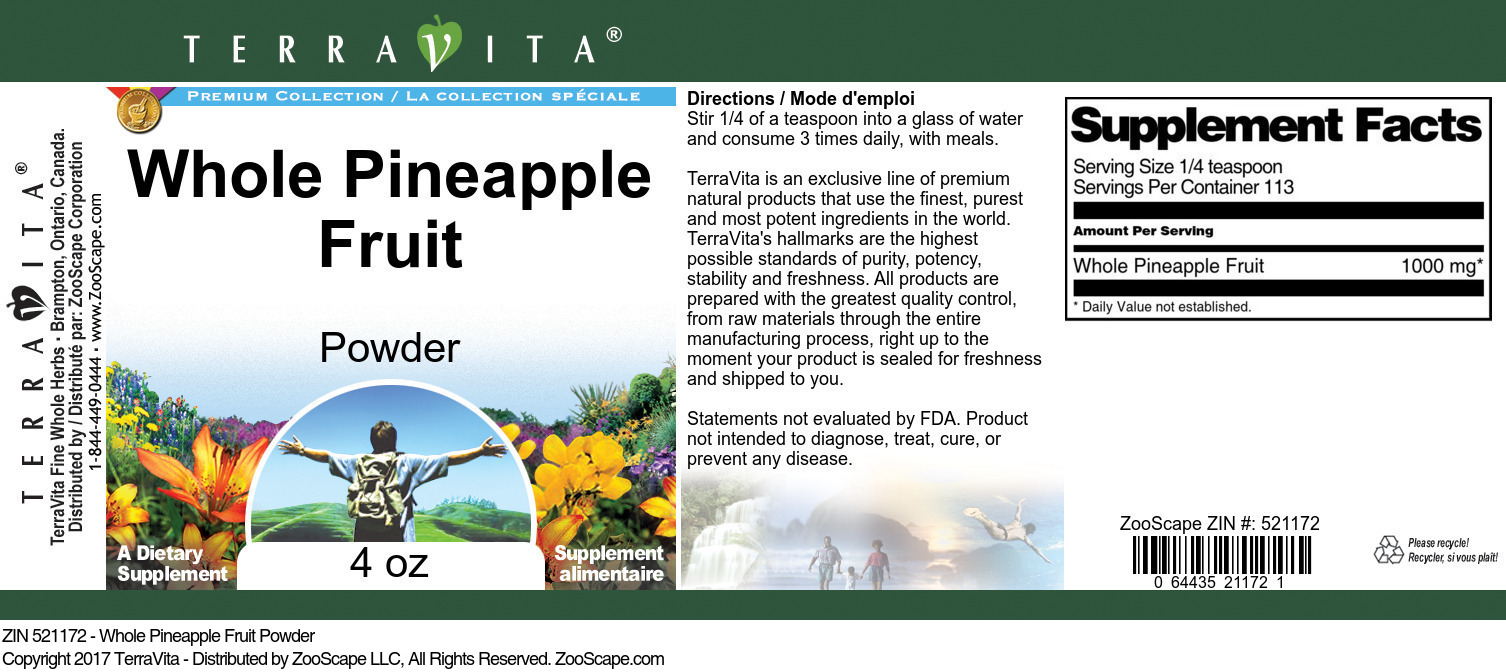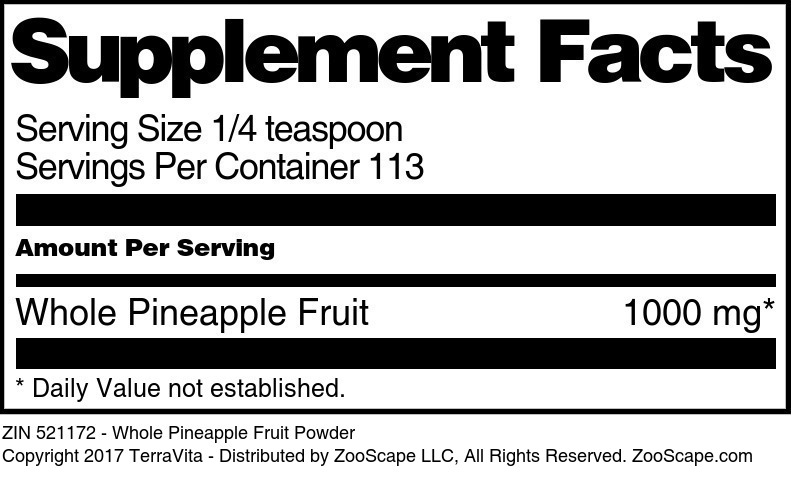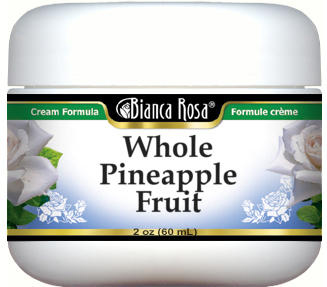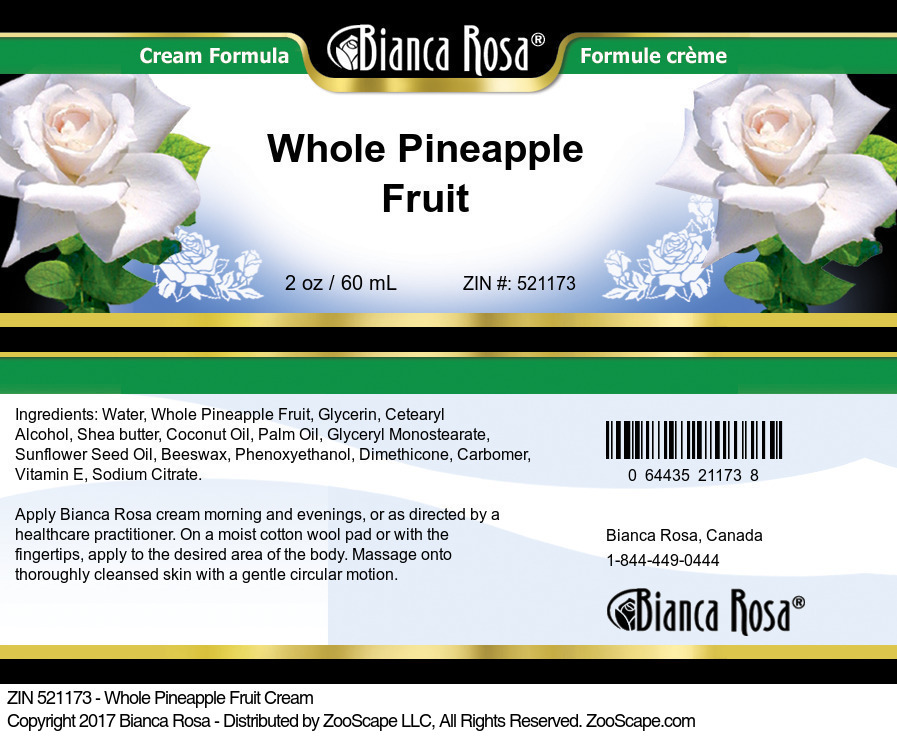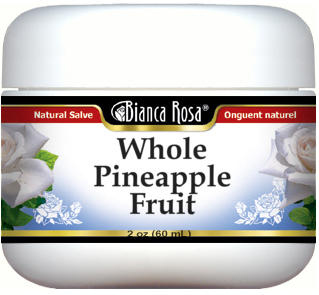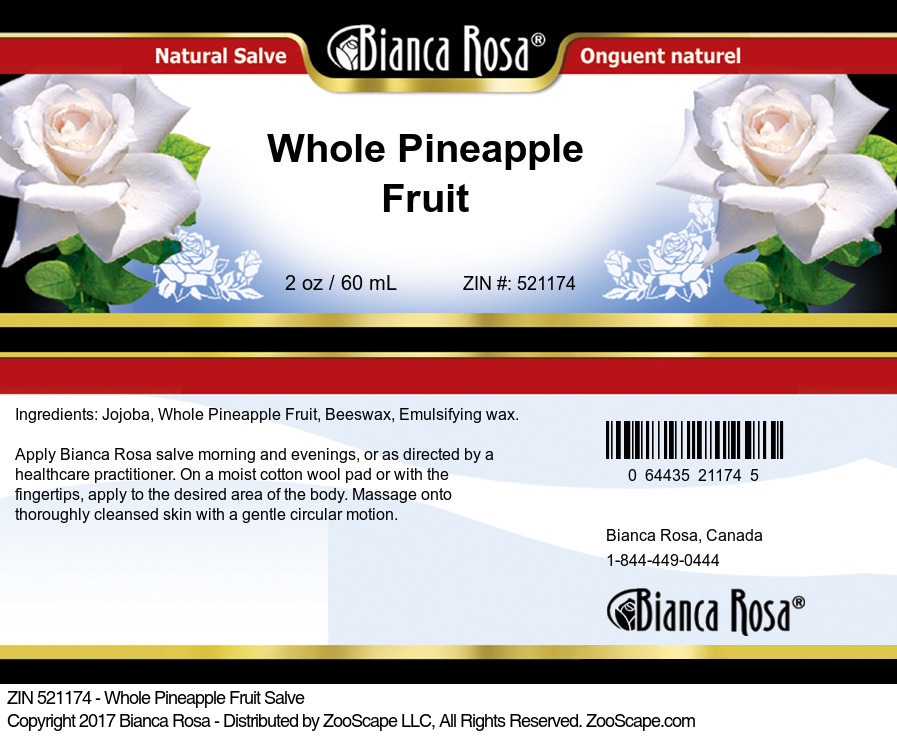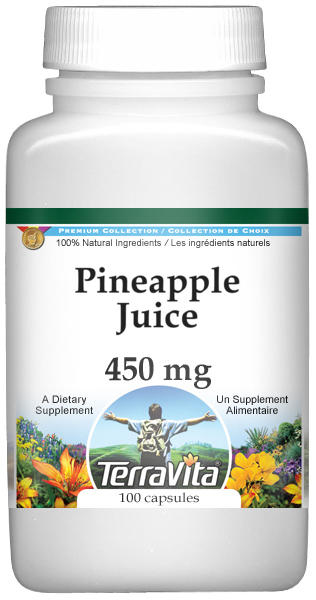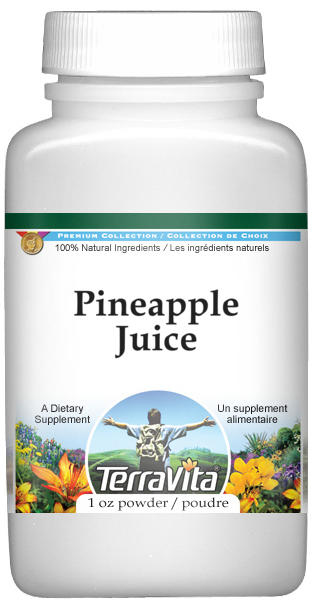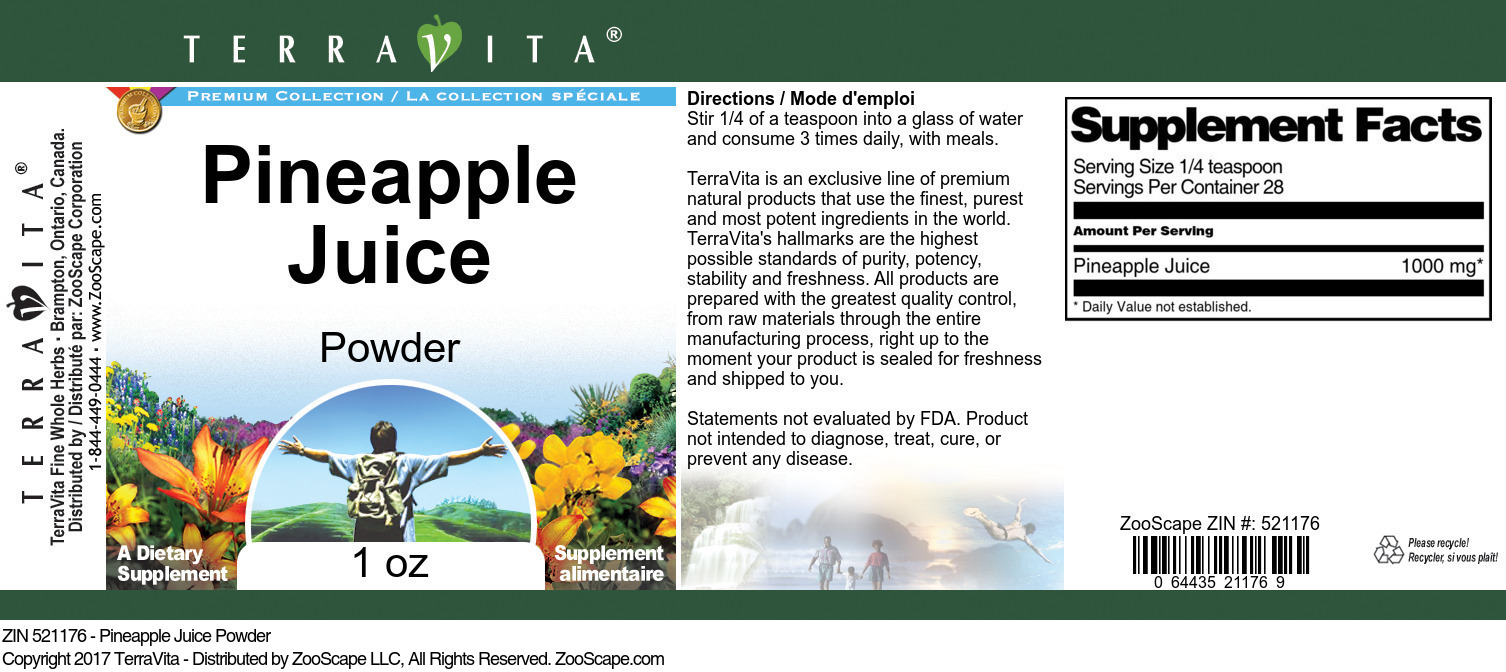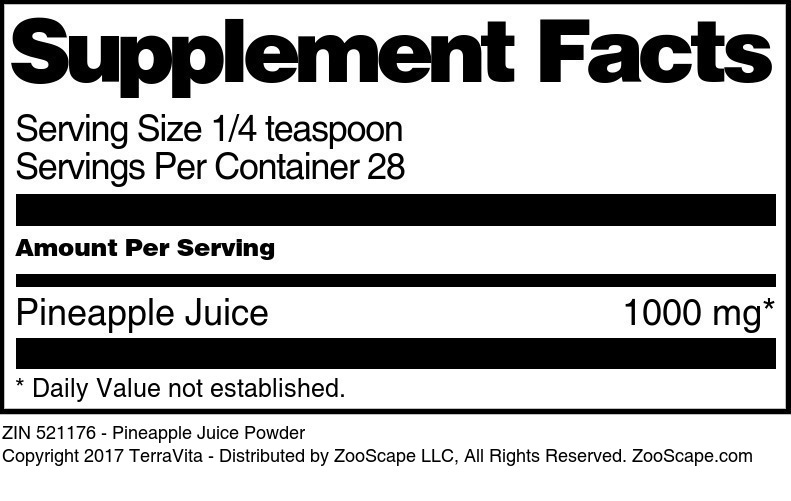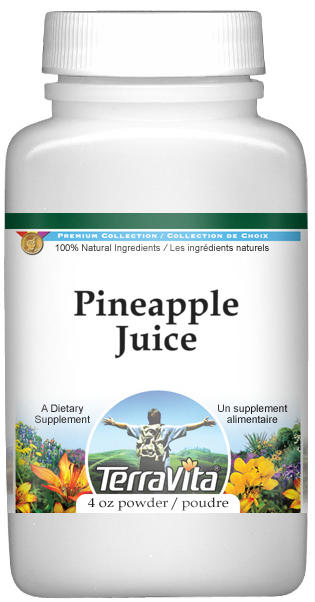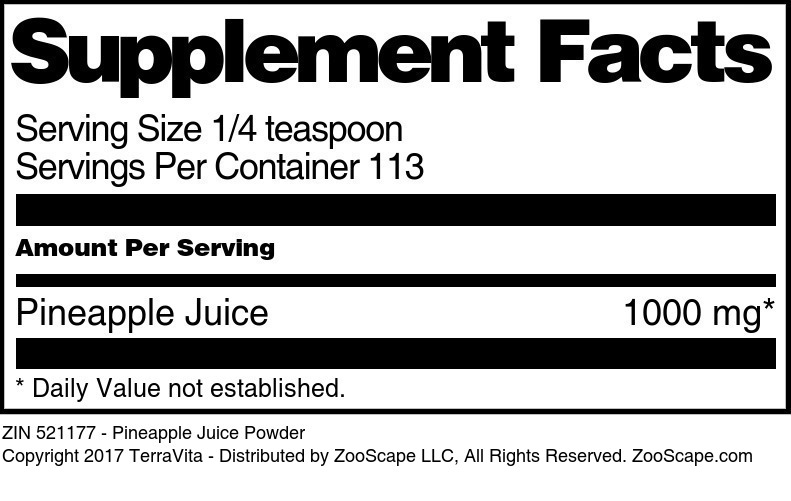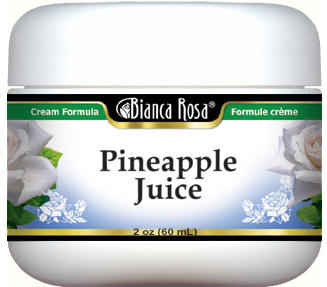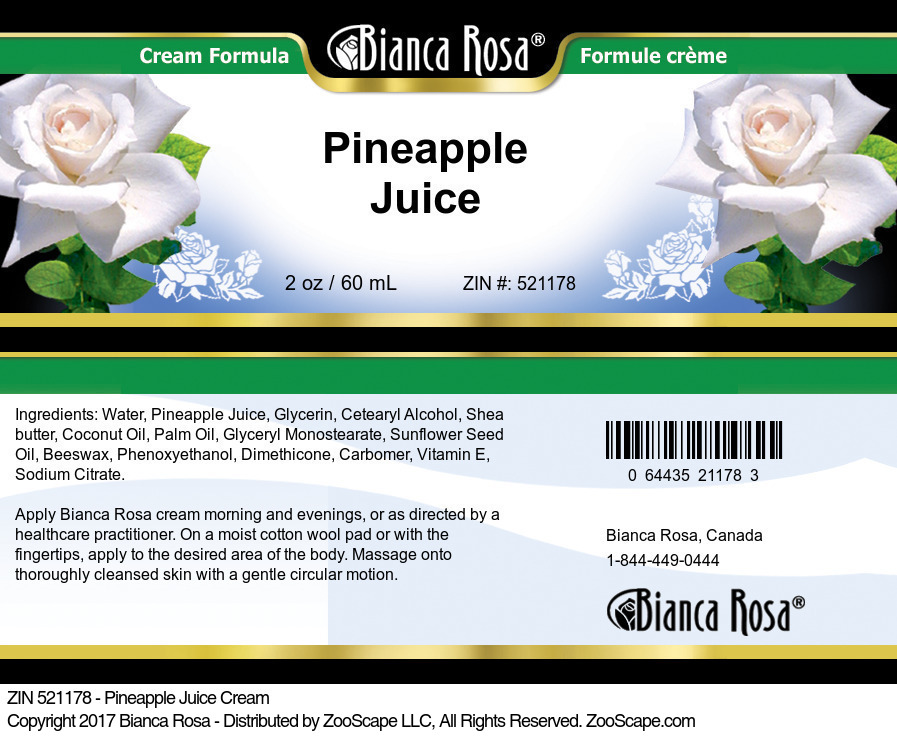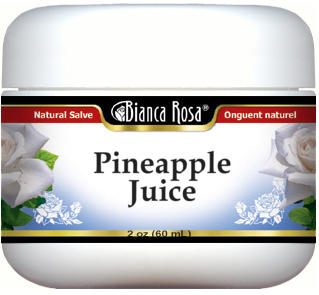Pineapple Stem
| Images | Product Name | Size | ZIN | Price | Quantity | Add to Cart |
| Pineapple Stem - 450 mg | 100 capsules | 511929 | $23.61 | |||
| Pineapple Stem Powder | 4 oz | 511930 | $28.67 | |||
| 1 oz | 511931 | $14.59 |
• Can be used to help support digestion, indigestion, heartburn, respiratory problems, nasal congestion and more.
• Supports problems with digestion, indigestion, heartburn, respiratory problems, nasal congestion and more.
Pineapple
Ananas comosus (L.) Merr. (= A. sativa).
Family Name: Bromeilaceae.
Other Names: Ananas (French); Ananas (German); ananasso (Italian); piña (Spanish).
Description: Pineapple is a distinctive perennial herb with rosettes of fine-textured leaves, each of which are sharply toothed along the edges. The purplish flower cluster, including the axis and the bracts, all become fleshy to form the well-known pineapple fruit.
Origin: Central America. The plant is now widely cultivated in tropical regions of Africa and Asia.
Parts Used: Ripe fruit and stems. They are used commercially to extract a mixture of proteolytic enzymes known as bromelain (Bromelainum crudum)
Therapeutic Category: Digestive, anti-inflammatory, anti-oedema.
Active Ingredients: Pineapple contains at least five enzymes collectively known as bromelains. The main compounds are two proteolytic enzymes known as bromelin A and B. Ripe fruits also contain 20 mg per 102, vitamin C and up to 15% sucrose; esters of caffeic and p-coumaric acid with glycerol have been described.
Health Effects: Available studies show that bromelain has anti-inflammatory, anti-oedemic, antiplatelet aggregation and fibrinolytic activities. There is evidence that a small percentage of orally administered bromelain may be absorbed into the bloodstream and lymph system. There appears to be sufficient clinical evidence that bromelain is effective in supporting post-operative and post-traumatic swelling.
Status: Comm. E+ (bromelain).
Preparation and Dosage: Bromelain is administered in the form of tablets. The daily amount of 80 - 240 mg is taken in two or three doses. The maximum duration of use is generally limited to eight or 10 days.
Powerful protein-digesting, or proteolytic, enzymes are extracted from the stems of pineapples. Bromelain, the name of this group of enzymes, is particularly useful for the potential to help support symptoms of muscle and tissue inflammation and as a digestive aid.
Bromelain is a natural blood thinner and anti-inflammatory. It works by breaking down fibrin, a blood-clotting protein that can impede good circulation and avoid tissues from draining properly. Bromelain also blocks the production of compounds that can cause swelling and pain. When inflammation is reduced, blood can move more easily to a traumatized area, supporting pain and speeding mending.
TerraVita exists to meet and ensure your family's health and wellness without the harmful effects or chemicals and prescription medications. We strive to make all of our products affordable and reliable and are constantly searching the market to maintain our affordability and to look for new ways to serve you and the ones you love. TerraVita has become a trusted household name for many families and can bring you and yours the very best herbal supplements, blends, teas and spices that are on the market today.
TerraVita is packed in tamper-proof, food-grade, recyclable containers.
ZooScape is proud to be the exclusive distributor of TerraVita teas, herbs and supplements in the United States, Canada and around the world. Please direct all wholesale and bulk inquiries to 1-844-449-0444.
These statements have not been evaluated by the Food and Drug Administration (FDA). Products are intended to support general well being and are not intended to treat, diagnose, prevent, or cure any condition or disease.
Pineapple 4:1 Extract
| Images | Product Name | Size | ZIN | Price | Quantity | Add to Cart |
| Pineapple 4:1 - 450 mg | 100 capsules | 521165 | $41.89 | |||
| Pineapple 4:1 Powder | 1 oz | 521166 | $18.40 | |||
| 4 oz | 521167 | $38.92 | ||||
| Pineapple 4:1 Cream | 2 oz | 521168 | $57.81 | |||
| Pineapple 4:1 Salve | 2 oz | 521169 | $63.41 |
Latin Botanical Name: Anaans Comosus
Plant Parts Used: Fruit
TerraVita exists to meet and ensure your family's health and wellness without the harmful effects or chemicals and prescription medications. We strive to make all of our products affordable and reliable and are constantly searching the market to maintain our affordability and to look for new ways to serve you and the ones you love. TerraVita has become a trusted household name for many families and can bring you and yours the very best herbal supplements, blends, teas and spices that are on the market today.
TerraVita is packed in tamper-proof, food-grade, recyclable containers.
ZooScape is proud to be the exclusive distributor of TerraVita teas, herbs and supplements in the United States, Canada and around the world. Please direct all wholesale and bulk inquiries to 1-844-449-0444.
Bianca Rosa is an exclusive line of premium-quality natural products sourced from only the finest and purest ingredients from around the world. Bianca Rosa is hallmarked by the highest possible standards of purity, stability and freshness. All Bianca Rosa products are prepared with the highest level of quality control, from the raw materials used through the entire manufacturing process, up to and including the moment that the finished product is sealed for freshness and shipped to you. Our highest possible standards backed by our personal guarantee.
Bianca Rosa makes all products as affordable as possible and we are constantly searching the market to maintain our affordability and to look for new ways to serve you. Bianca Rosa has been a trusted household name for many families throughout the world since the 1990s. Bianca Rosa is packed in tamper-proof, recyclable containers.
ZooScape is proud to be the exclusive distributor of all Bianca Rosa products, including creams, salves and oils in the United States, Canada and around the world. Please direct all wholesale and bulk inquiries to 1-844-449-0444.
These statements have not been evaluated by the Food and Drug Administration (FDA). Products are intended to support general well being and are not intended to treat, diagnose, prevent, or cure any condition or disease.
Whole Pineapple Fruit
| Images | Product Name | Size | ZIN | Price | Quantity | Add to Cart |
| Whole Pineapple Fruit - 450 mg | 100 capsules | 521170 | $39.17 | |||
| Whole Pineapple Fruit Powder | 1 oz | 521171 | $17.20 | |||
| 4 oz | 521172 | $36.39 | ||||
| Whole Pineapple Fruit Cream | 2 oz | 521173 | $54.04 | |||
| Whole Pineapple Fruit Salve | 2 oz | 521174 | $59.29 |
Latin Botanical Name: Ananas Comosus
Plant Parts Used: Fruit
TerraVita exists to meet and ensure your family's health and wellness without the harmful effects or chemicals and prescription medications. We strive to make all of our products affordable and reliable and are constantly searching the market to maintain our affordability and to look for new ways to serve you and the ones you love. TerraVita has become a trusted household name for many families and can bring you and yours the very best herbal supplements, blends, teas and spices that are on the market today.
TerraVita is packed in tamper-proof, food-grade, recyclable containers.
ZooScape is proud to be the exclusive distributor of TerraVita teas, herbs and supplements in the United States, Canada and around the world. Please direct all wholesale and bulk inquiries to 1-844-449-0444.
Bianca Rosa is an exclusive line of premium-quality natural products sourced from only the finest and purest ingredients from around the world. Bianca Rosa is hallmarked by the highest possible standards of purity, stability and freshness. All Bianca Rosa products are prepared with the highest level of quality control, from the raw materials used through the entire manufacturing process, up to and including the moment that the finished product is sealed for freshness and shipped to you. Our highest possible standards backed by our personal guarantee.
Bianca Rosa makes all products as affordable as possible and we are constantly searching the market to maintain our affordability and to look for new ways to serve you. Bianca Rosa has been a trusted household name for many families throughout the world since the 1990s. Bianca Rosa is packed in tamper-proof, recyclable containers.
ZooScape is proud to be the exclusive distributor of all Bianca Rosa products, including creams, salves and oils in the United States, Canada and around the world. Please direct all wholesale and bulk inquiries to 1-844-449-0444.
These statements have not been evaluated by the Food and Drug Administration (FDA). Products are intended to support general well being and are not intended to treat, diagnose, prevent, or cure any condition or disease.
Pineapple Juice
| Images | Product Name | Size | ZIN | Price | Quantity | Add to Cart |
| Pineapple Juice - 450 mg | 100 capsules | 521175 | $42.24 | |||
| Pineapple Juice Powder | 1 oz | 521176 | $18.56 | |||
| 4 oz | 521177 | $39.25 | ||||
| Pineapple Juice Cream | 2 oz | 521178 | $58.28 | |||
| Pineapple Juice Salve | 2 oz | 521179 | $63.93 |
Latin Botanical Name: Ananas Comosus
Plant Parts Used: Juice
TerraVita exists to meet and ensure your family's health and wellness without the harmful effects or chemicals and prescription medications. We strive to make all of our products affordable and reliable and are constantly searching the market to maintain our affordability and to look for new ways to serve you and the ones you love. TerraVita has become a trusted household name for many families and can bring you and yours the very best herbal supplements, blends, teas and spices that are on the market today.
TerraVita is packed in tamper-proof, food-grade, recyclable containers.
ZooScape is proud to be the exclusive distributor of TerraVita teas, herbs and supplements in the United States, Canada and around the world. Please direct all wholesale and bulk inquiries to 1-844-449-0444.
Bianca Rosa is an exclusive line of premium-quality natural products sourced from only the finest and purest ingredients from around the world. Bianca Rosa is hallmarked by the highest possible standards of purity, stability and freshness. All Bianca Rosa products are prepared with the highest level of quality control, from the raw materials used through the entire manufacturing process, up to and including the moment that the finished product is sealed for freshness and shipped to you. Our highest possible standards backed by our personal guarantee.
Bianca Rosa makes all products as affordable as possible and we are constantly searching the market to maintain our affordability and to look for new ways to serve you. Bianca Rosa has been a trusted household name for many families throughout the world since the 1990s. Bianca Rosa is packed in tamper-proof, recyclable containers.
ZooScape is proud to be the exclusive distributor of all Bianca Rosa products, including creams, salves and oils in the United States, Canada and around the world. Please direct all wholesale and bulk inquiries to 1-844-449-0444.
These statements have not been evaluated by the Food and Drug Administration (FDA). Products are intended to support general well being and are not intended to treat, diagnose, prevent, or cure any condition or disease.
